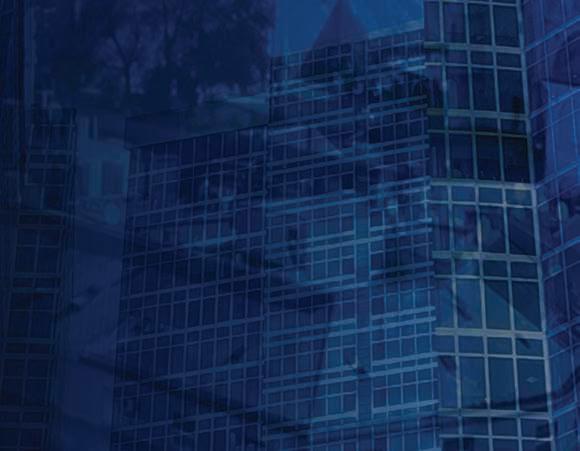






WE CAN CHANGE, ADAPT AND IMPROVE THE LEGISLATIVE FRAMEWORK
DAMIR HABIJAN Minister of Justice, Public Administration and Digital Transformation


SLOVAKS AND CROATS SHARED COMMON HISTORY THROUGH CENTURIES


LUKA BURILOVIĆ, PHD President of the Croatian Chamber of Economy



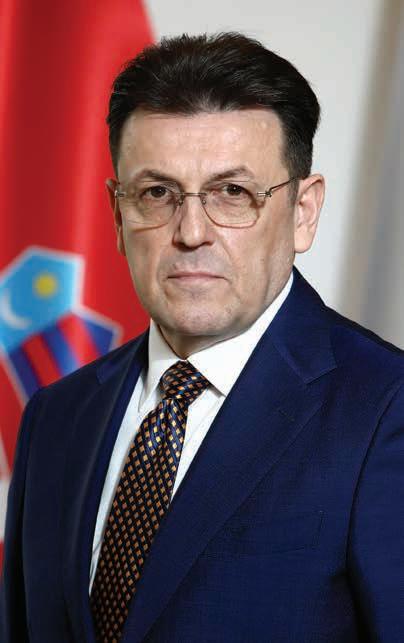

H.E. HANA KOVÁČOVÁ, Ambassador of the Slovak Republic to Croatia







H.E. HONG SUNGWOOK Ambassador of the Republic of Korea to Croatia


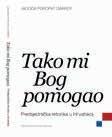












































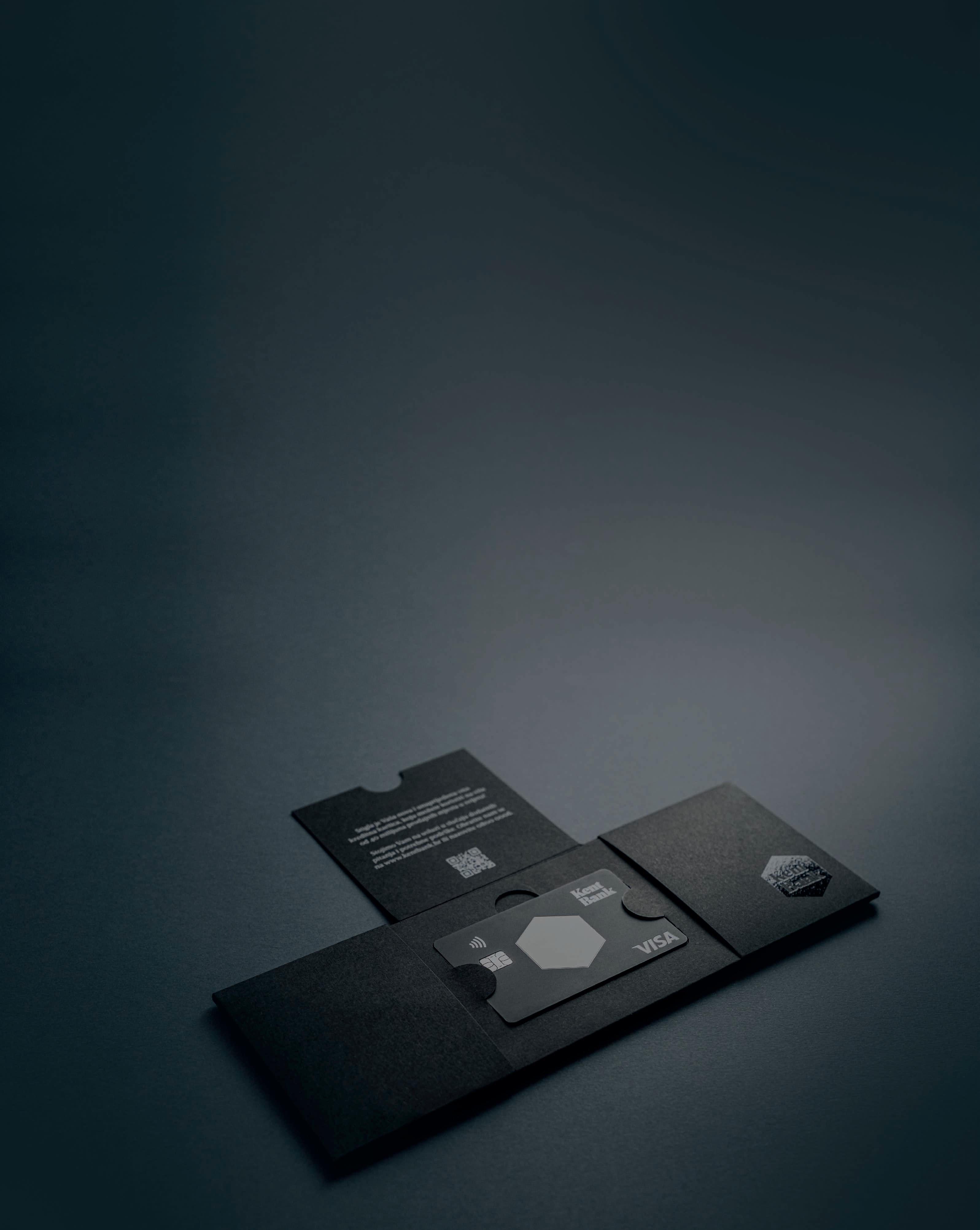

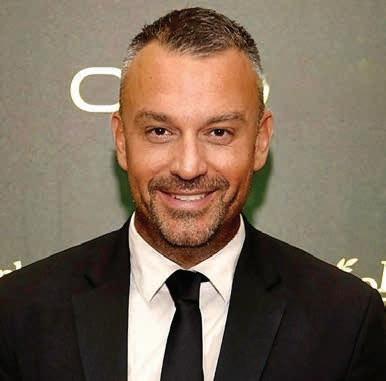
BOBAN SPASOJEVIĆ Director and Editor-in-Chief
We started our journey in the media landscape in Croatia in 2017. At that time, just like today, printed media generally recorded a decline in market share. In such circumstances, when you find a good “niche”, when you address a targeted and specific audiences with expertise, professionalism, and dedication to content, success is inevitable. Although the B2B media market was already “divided” and somewhat structured, we were brave enough to take the leap. We remain the only ones who connect and write about business and diplomacy in one place. As a B2B magazine, our goal is to improve the business en-
vironment by showcasing individuals, companies, and brands that have the right message for end-users. We conduct analyses through interviews and expertauthored articles, and we also follow innovations in business because our audience consists of decisionmakers, CEOs, directors, managers, owners—those at the top, as well as those who aspire to reach the top. Diplomacy and the diplomatic community in Croatia are the other part of this whole. We continue to have the same goal: to present ambassadors, representatives of international organizations and domestic professional associations from this domain, as their words and opinions certainly influence public opinion and the direction in which Croatia is headed. A complementary part of the magazine is also our website as a platform that reflects the times we live in: https://www.diplomacyandcommerce.hr/. This makes us accessible to a broader audience, and the significant visitor statistics demonstrate that our readership is substantial. We remain committed to balanced, professional journalism without tabloid elements, in an era increasingly focused on counting “clicks” and views, often neglecting content quality.
Throughout these years, we have also organized numerous events, from celebrating the magazine’s anniversary to the DC AWARDS ceremony that was held for the first time last year, which we will continue next year as well.
Thank you for trusting us, for reading us, and we will continue what we started, with new stories and events, because we believe in common success.


BOBAN SPASOJEVIĆ, Magazine Director Croatia and Editor in Chief boban@diplomacyandcommerce.hr
VLADIMIR DUDAŠ C e n t r o b i r o Art Director
GORANKA MILOŠEVIĆ Translation Representative for the Republic of Croatia ASPEKT obrt za savjetovanje i usluge
Owner of the license/ magazine name Diplomacy&Commerce
ROBERT ČOBAN Director



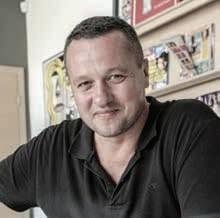
ČOBAN President at Color Press Group
During the first week of the Olympic Games, I rode my bike every day from the center of Paris to Parc de la Villette, where our hotel was located, and I found myself contemplating the racial question in France. On Boulevard de Sébastopol, in its upper part near Gare de l’Est, it’s almost impossible to see a white person on the sidewalks. Migrants from Africa or French citizens whose parents came from that continent sit or stand on the streets, listening to music and having fun... The atmosphere resembles that of the streets of Dakar rather than just a couple of kilometers away on Rue de Rivoli.
As I rode my bike, I thought about why the rightwing gained so much in the first round of the recent elections and how that frightened the rest, leading them to overwhelmingly vote for the left in the second round. I re-watched the first episode of The Romanoffs from 2018. In this scene, Anushka, a Frenchwoman of Russian descent whose ancestors were allegedly part of the Romanov imperial family, lives in a vast salon apartment with a view of the Eiffel Tower. The apartment, she says, was bought in the 19th century by Roman, one of the many illegitimate sons of Tsar Paul I. “He liked it here because he could hear the sound of the guillotine,” says Anushka. One day, an agency sends her a housemaid — a young, beautiful girl with her head covered, a French-born woman but of Algerian descent.
I don’t want to spoil what happens by the end of the episode for those who haven’t watched it, but here’s a striking dialogue where Anushka speaks to her young housemaid: “We defeated you at Tours in 732. In 1204, we leveled Constantinople , not Istanbul, to the ground. We defeated you in Jaffa, Damascus, and in Beirut. We took Jerusalem from you and gave it to the Jews. In 1693, we pushed you back for good at Vienna. To celebrate our

victory, we took the symbol from your flag and made this (Anushka picks up a croissant from the plate). And every day, we laugh as we eat you for breakfast!” (Anushka bites into the croissant and laughs).
After returning from Paris, I was met with news of bloody riots in England targeting migrants and Muslims. In England, which always seemed to me to be a country that somehow did a better job integrating its Hindus, Pakistanis and Africans into its society. I often discuss this topic with friends and in television shows. When it comes to migration, I am one of those people who believe that the mixing of populations is good for both society and the economy. However, if you come from your societies in Africa or Asia to a European country because life is better there, then, while preserving your uniqueness and traditions, you must also accept the behavioral standards of the society you’ve come to. Because if life was better where you came from, you would have stayed there, you wouldn’t have come to Paris, Hamburg, or Milan. It’s similar here in Belgrade and Novi Sad, for example. Kusturica once said that there used to be “trains full of poets and basketball players” coming to Belgrade from Montenegro. That, of course, enriched Belgrade, just as Zagreb was enriched by people from Herzegovina and Janjevci, for example. But it’s important that these newcomers, while preserving their traditions, also accept the standards of life in the community they’ve come to. After all, they came because life is better here, and not to reduce this new community to the standards of the place they’ve left behind — which is often the case, unfortunately. And that only fuels the heated arguments of the right-wing.



















































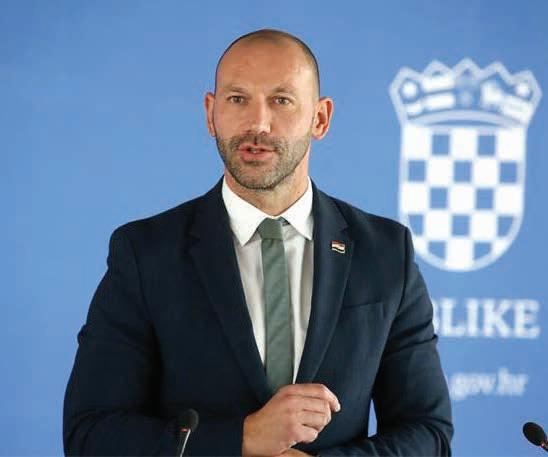
It is crucial that people in the field point out what they are struggling with and what should be changed in the legislative sense, by providing their inputs, suggestions, and comments
DAMIR HABIJAN Minister of Justice, Public Administration and Digital Transformation
Aseemingly very complicated area, for which Minister Damir Habijan, the Minister of Justice, Administration, and
Digital Transformation, is responsible, is conducting numerous projects aimed at improving the current situation and implementing new plans in the upcoming period. In an interview with Diplomacy & Commerce magazine, Minister Habijan also talks in detail about the Trg pravde (Justice
Square) project in Zagreb, the largest infrastructure project in the judiciary. He discusses what the ministry is doing to implement the European Court of Justice’s ruling, which declared that Croatia’s mechanism for aligning judicial practices is contrary to European law. Another topic is the 2030 Poli-
cy Programme “Path to the Digital Decade”. According to the Minister, modernizing Croatia’s public administration and efficiently delivering public services are prerequisites for a favorable entrepreneurial environment and better living conditions for all citizens.
How would you rate the situation in Croatia’s judiciary today?
The Ministry is investing great effort to improve every segment in this field, from free legal aid, new laws regarding domestic violence, the Commercial Companies Act, etc. What would you single out as crucial in this area?
The judiciary is a specific area with a set framework where the room for maneuver is quite limited. What falls under the jurisdiction of the Ministry is the legislative framework, which we can change, adapt, and improve. However, the stakeholders within that legal framework are mostly independent and autonomous, including judges, public prosecutors, and to some extent even lawyers and notaries, who are independent professionals. Therefore, the ability to act in this area is more constrained than, for instance, in the economy, where you can be quite creative. From day one, I expressed my desire to establish communication with the judges, the Public Prosecutor’s Office, as well as with lawyers and public notaries.
The state of the judiciary is influenced not only by challenges like the number of cases being handled in courts but also by circumstances arising from the obligations we’ve undertaken as a member of the European Union and certain global trends. The real situation is quite complex, but not as bad as it is often portrayed in public.
It is crucial that people in the field point out what they are struggling with and what should be changed in the legislative sense, by providing their inputs, suggestions, and comments. And that is a fine, delicate balance that all of us involved in the process should maintain.
Justice Square in Zagreb is the largest judicial infrastructure project. What does it include and when can we expect the works to be finished and the square put into use?
The Justice Square – Phase project I in Zagreb is an extremely important infrastructure project that will transform the judicial landscape. It will provide new facilities for the Commercial Court in Zagreb, the High Commercial Court of the Republic of Croatia, the Administrative Court in Zagreb, the High Administrative Court of the Republic of Croatia, the Judicial Academy, and the Center for Peaceful Dispute Resolution. The project will
ensure better working conditions and changes in the judiciary that will contribute to improved court performance.
The selected location allows for the construction of a large complex that can accommodate all necessary facilities and is well connected to public transportation. The southern building will cover approximately 25,000 square meters, and the underground garage will provide about 1,300 parking spaces.
Funding for Phase I of this project is secured through the 2021-2026 National Recovery and Resilience Plan, under component
Act for cases before the Supreme Court of the Republic of Croatia. Additionally, there are considerations regarding the composition of the expanded panel.
Therefore, it is essential to first amend the Courts Act, particularly the sections related to the work of judicial department sessions and plenary sessions of all judges, and to establish alternative mechanisms for harmonizing judicial practice. There is also a need to consider amendments to the fundamental procedural laws, especially the Civil Procedure Act and the Criminal Procedure Act.
Given the complexity of this
ALTHOUGH WE HAVE DIGITIZED MANY SERVICES, WE MUST STILL CATER TO THE NEEDS OF CITIZENS WHO PREFER DIRECT, IN-PERSON INTERACTION, ENSURING THAT SERVICES REMAIN AVAILABLE IN PHYSICAL FORM
C2.5, “A Modern Judiciary Ready for Future Challenges.” The value of the work contracted with the consortium of ING GRAD d.o.o. and KAMGRAD d.o.o. amounts to 119.8 million euros plus VAT, with the expected completion of Phase I of the Justice Square in Zagreb scheduled for the third quarter of 2026.
The idea for the Justice Square project originated in the early 2000s within the then Ministry of Justice. The first step in planning this project was taken in 2007, when an architectural competition was held, with the winning design by Davor Bušnja, Zrinka MrkovićMračić, and Vedran Škopac. However, the project stalled until 2021, when the government included it in the 2021-2026 National Recovery and Resilience Plan.
The Court of Justice of the European Union has issued a ruling declaring the Croatian mechanism for harmonizing judicial practice to be in violation of European law. What is the Ministry doing to address this, and how does this decision impact the everyday lives of citizens and businesses?
The implementation of this ruling into the national legal framework raises several open questions, such as the potential need to introduce an expanded panel in the criminal branch of the judiciary and into appellate courts, following its introduction in the Civil Procedure
the goal of strengthening its own digital sovereignty and setting its standards for the new digital age.
Croatia’s contribution is embedded in 30 measures, organized across 12 defined digital goals. These include ensuring that 80% of citizens possess basic digital skills, employing 20 million information and communication technology (ICT) professionals within the Union, promoting women’s access to this field, providing gigabit network coverage to all end users at fixed locations, covering all populated areas with high-speed wireless networks, and ultimately ensuring that 75% of businesses use cloud computing services.
We have already achieved one digital goal (the eleventh), which is that all adult citizens have access to their electronic health records through the Health Portal.
issue, but also recognizing the necessity of ensuring the uniform application of the law, which is a key component of the rule of law, finding appropriate solutions to establish mechanisms for harmonizing judicial practice that meet the criteria outlined in the EU Court’s ruling of July 11, 2024, and comply with the requirements regarding judicial independence set out in Article 19 of the EU Treaty, requires collaboration and input from the expert community, particularly representatives of the judiciary, as well as the academic community.
For this reason, meetings were held with relevant judicial stakeholders to discuss this matter.
You recently participated in a meeting of the Working Group for the first update of the 2030 Policy Programme “Path to the Digital Decade”. This is a strategic document for the digital decade that outlines the ways and measures by which Croatia will achieve the set European digital goals. What are these measures?
The document contains 30 measures outlined in the strategic 2030 Policy Programme “Path to the Digital Decade”, which the Croatian Government adopted in March of this year. The creation of this document was a requirement for all EU member states. The European Union embarked on this path with
To advance the digitalization of public services for citizens and businesses by 2030, plans include improving the national information infrastructure, standardizing and digitizing public services, establishing a centralized user support system for e-Services, and developing a digital mobile platform.
The 2023 Report on the work and development of the national information infrastructure includes projects aimed at achieving the goals defined in the e-Croatia 2020 Strategy, activities from the 2021-2026 National Recovery and Resilience Plan related to digitalization, and activities realized through the “Development of e-Services” call. How far has Croatia progressed in the process of digitalization and e-transformation, and what still needs to be done?
The focus of digitalization is on improving the quality of life for citizens and enhancing the competitiveness of the economy. One of the largest IT infrastructure projects in the country—the establishment of the Shared Services Center—has been completed. A Unified Contact Center for all e-public services has been established to provide user support, and interoperability between IT systems has been improved, with data exchange increasing 26-fold, from 6,863,850 to 178,506,507 transactions. A new Digital Croatia Strategy until 2032 has been adopted, and to monitor the implementation of digital transformation guidelines, the National Council for Digital Transformation has been established. Ad-
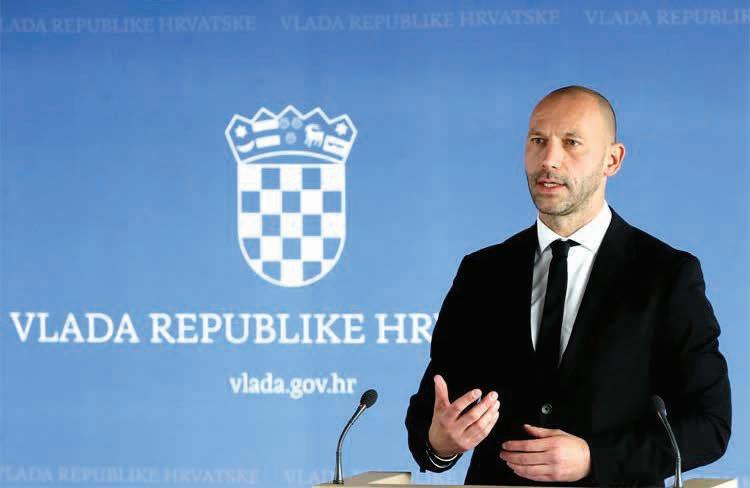
ditionally, a National Coordination Center for Industry, Technology, and Research in the field of cybersecurity has been founded. In 2023, remaining projects such as the Open Data Portal and the Implementation of e-Standards, defined by the e-Croatia 2020 Strategy, were completed at a cost of €42,782,210.42, fulfilling the goals of that Strategy.
You and your colleague, Minister Ante Šušnjar, have been appointed members of the Council for negotiations with MOL regarding the potential buyback of shares held by that Hungarian company in INA. How much room is there for maneuvering, and what are the possibilities for buying back those shares, given MOL’s previous stance and behavior, and how long is this process expected to take?
I was appointed as a member of the Council for negotiations with MOL regarding the possible buyback of shares held by MOL in INA back in January of this year, during my previous role as Minister of Economy and Sustainable Development. Upon assuming the position of Minister of Justice, Ad-
IN 2023, THE PROJECTS SUCH AS THE OPEN DATA PORTAL AND THE IMPLEMENTATION OF E-STANDARDS, DEFINED BY THE E-CROATIA 2020 STRATEGY, WERE COMPLETED.
ministration, and Digital Transformation, I remained a member of the Council in this capacity.
Energy policy, including the management of state-owned energy companies, is primarily under the jurisdiction of the Ministry of Economy, and this also pertains to the governance rights in INA.
When discussing the development of public administration, what would you identify as the biggest challenges, and how can they be addressed? Additionally, what are you most proud of in this area?
The modernization of Croatia’s public administration and the effective provision of public services are essential for creating a favorable entrepreneurial environment and improving the quality of life for all our citizens. Along with the legislative and strategic
framework, we constantly monitor the situation and emerging needs stemming from new social circumstances.
In this context, we are striving to leverage the opportunities provided by digital transformation to enhance our business processes and public services, with a key goal of reducing the administrative burden for both citizens and businesses.
I would like to highlight several services that have particularly facilitated access to public administration. These include the e-Novorođenče service, which allows parents to electronically register the birth of their child, the e-Prijava vjenčanja and ePrijava životnog partnerstva services, which enable the electronic submission of marriage or life partnership registration, and the important tool for the electoral process — access to the Voter Reg-
istry, where citizens can check their registration status.
Although we have digitized many services, we must still cater to the needs of citizens who prefer direct, in-person interaction, ensuring that services remain available in physical form. For instance, in 2023, 25,226 births were registered in civil registry offices, while 3,605 were submitted via e-services. Similarly, 16,480 marriage intentions were registered in person, while 1,241 were done electronically.
We’ve noticed a growing trend in the use of the e-Citizens system, which now has over two million users. Citizens currently have access to more than 100 e-services, and given this trend, we will continue to develop and expand electronic services.
Regarding local and regional government, we have developed a Unified IT System, a database on the capacities of local and regional self-government units, which allows for collection, aggregation and processing of data based on which administrative and financial capacities can be determined, as well as other capacities necessary to ensure the quality and efficiency of services within their legally defined responsibilities.




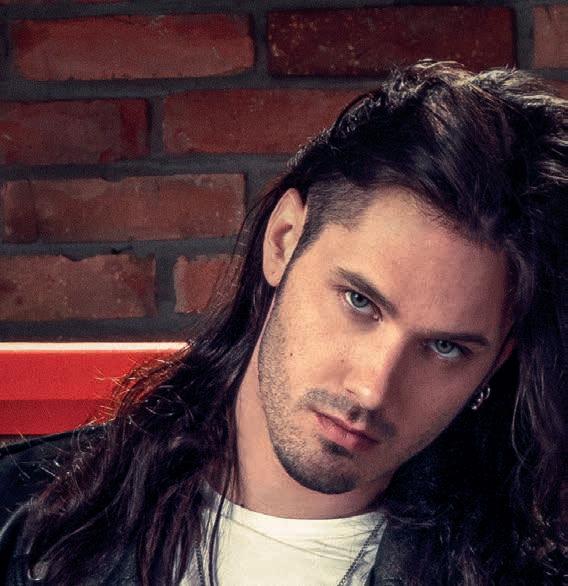



Slatka je briga koju glazbu odabrati. Kada su u pitanju

krediti, PBZ ima sluha za sve vaše potrebe.

PBZ NENAMJENSKI KREDITI

• fiksna kamatna stopa

• bez naknade za obradu kredita

The direction of the European economy in the coming period will continue to be influenced by the pace of Germany’s economic recovery, growing demand, and the need for a stable and affordable energy supply.
LUKA BURILOVIĆ, PHD
President of the Croatian Chamber of Economy
When it comes to Croatia’s trade with the world, the highest values are achieved with EU member states. In uncertain international conditions, including the decline in industrial production in Europe, particularly in Germany, and the influx of cheap Chinese goods that reduce competitiveness, Croatia is holding up well without major negative trends, says Dr. Luka Burilović, President of the Croatian Chamber of Economy, in an interview with Diplomacy&Commerce. We also discussed the seventh package of measures by the Croatian Government, which continues to protect the most vulnerable groups of citizens,
including micro and small businesses, as well as the support for Croatians who wish to return and do business in Croatia.
As we approach the end of the year, how would You rate 2024 from the perspective of the Croatian Chamber of Economy? What has been the most critical,
and what would You highlight as positive aspects of this year’s events?
This year has also been marked by a fairly volatile and challenging international environment. Based on information from our members, particularly in the industrial sector, I would say that conditions are worsening, which is especially evident
HGK PLAYS A PARTICULARLY IMPORTANT ROLE IN THE INTERNATIONALIZATION OF THE ECONOMY, A ROLE THAT HAS BEEN RECOGNIZED BY COMPANIES, THE BROADER PUBLIC, AND, VERY IMPORTANTLY, BY FOREIGN ECONOMIC ENTITIES AND INTERNATIONAL ORGANIZATIONS.
through the decline in industrial production and the slowing of export growth. The direction of the European economy in the coming period will be determined by the pace of Germany’s economic recovery, growing demand, and the need for stable and affordable energy supplies. On the other hand, domestic demand has remained solid. Employment and wages are increasing, and EU funds continue to flow in, supporting investment activities. When we add everything up, it’s no surprise that Croatia is one of the fastest-growing economies in the Eurozone, with stable prospects, as confirmed by the recent awarding of the highest credit and investment rating in the history of the Republic of Croatia by Standard and Poor’s and Fitch. This shows that Croatia is converging quickly and has capitalized well on its 10 years of membership in the European Union.
Enabling emigrated Croatians to see opportunities in returning to their homeland is essential for addressing the labor shortage caused by Croatia’s negative demographic trends. What is the Croatian Chamber of Economy (HGK) doing in this regard, and how do You view the chronic labor shortage and the import of workers from abroad? Is this a sustainable long-term solution? The return of emigrated Croatians, including those from the second and third generations, is undoubtedly part of a comprehensive solution that we must implement to reverse or at least mitigate negative demographic trends. Another part of the solution involves retaining and activating the existing workforce, especially the inactive labor population, and ensuring that people stay in the workforce for as long as possible. It’s encouraging that as our standard of living rises — we’re already at almost 80% of the EU average — the need for economic emigration will diminish. Combined with pro-natalist policies, I believe we can stop these negative trends in the long run. In the short term, we need to secure an adequate pool of educated and skilled workers to ensure continued growth. In light of the increasing demand for foreign labor, HGK established the Community of Employment Agencies at the end of last year and launched the first integration program for foreign workers, “Welcome to Croatia.” By the end of the year, we expect to sign an agreement for implementing the project to internationalize the labor market and establish demand centers for the information and selection of foreign workers or potential immigrants of Croatian origin.




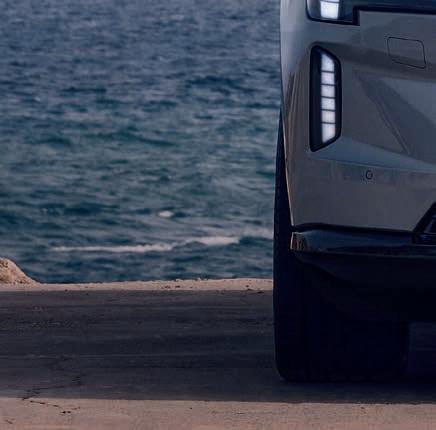



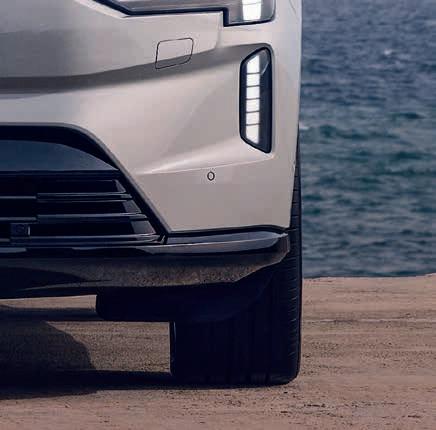



OUR EXCLUSIVE OFFER TAILORED TO YOUR UNIQUE REQUIREMENTS:
XC40 starting from 28.470 EUR
XC60 starting from 33.990 EUR
XC90 starting from 49.709 EUR EX90 starting from 75.377 EUR


At Volvo, we have been serving the diplomatic community since 1956, and today we offer one of the most comprehensive diplomatic sales programs on the market. You have trusted us all these years because we provide cars and services that are perfectly tailored to your specific needs. We make the purchase of a Volvo as easy as possible for you by offering a wide selection of cars and various options – you can design your car in our configurator or use our consultants to help you make the right decision. Additionally, as a diplomat, you can order your new Volvo at a discounted price, with premium service and exclusivity guaranteed.
REQUEST A QUOTE FROM YOUR LOCAL VOLVO DIPLOMAT DEALER

How do You comment on the seventh package of measures from the Croatian Government aimed at continuing to protect the most vulnerable groups of citizens, including micro and small businesses? What are Your estimates on when we can expect stabilization of the markets, inflation, and business conditions? It is very important that a gradual reduction in energy subsidies has begun, as this brings the economy back to market fundamentals, which is the best guarantee for investments and the long-term competitiveness of the economy. The gradual reduction of subsidies is crucial because it limits inflationary pressures on sensitive groups and the SME sector compared to a scenario where we would suddenly revert to market prices. I believe that a greater threat than inflation for businesses and citizens will be the very slow growth of key European economies, particularly Germany and Italy, which negatively impacts business opportunities for Croatian companies. I would also add that Chinese companies continue to push surplus production onto foreign markets without regard for financial results. This reduces the prices of a range of products, which significantly affects the competitiveness of European and other producers.
International cooperation is one of the key activities of the Chamber. What is Croatia’s position in this segment, considering we are an EU member? How many opportunities do we have for cooperation with other globally significant countries, such as China and the USA, and in what ways?
When it comes to Croatia’s trade with the world, the highest values are achieved with EU member states, which accounted for 68% of total exports and 77% of total imports in 2023. The most important trading partners for Croatia are EU member countries, with Germany, Italy, Slovenia, and Hungary leading the way. In the structure of Croatia’s trade for 2023, 32% of total exports relate to third markets. Given that we achieve nearly three-quarters of our trade with EU countries and nearly 90% of our total trade with European countries, any increase in exports to third countries acts as a kind of insurance policy for the Croatian economy. This aspect is especially pronounced when the EU is in recession or close to it. By joining the EU, Croatia has definitely strengthened its position in international trade, becoming part of a broad network of trade agreements that the European Union has

established with third countries. The Common Trade Policy is an exclusive competence of the European Union, and Croatia has gained the opportunity to facilitate cooperation with 74 countries through 42 signed agreements. The markets of third countries offer export opportunities but are also an important source of raw materials and goods for EU companies and part of their global supply chains.
Therefore, we see potential for strengthening trade relations with third countries, especially with China and the USA. However, it should be noted that the entire framework of foreign trade and economic cooperation is not solely determined by EU agreements with third countries, and there are significant aspects in which EU member states negotiate independently on business conditions. One such example is the customs certificates required for exporting to China, which pertain to specific groups of products such as pork, beef, dairy products, fresh fish, and others. Croatian companies are still waiting for most of these certificates. Also, it is very important that Croatia successfully lobbied for the abolition of visas for US passport holders, which was a significant step in strengthening bilateral relations; however, we are still waiting for the elimination of double taxation. The agreement was signed nearly two years ago, and once it comes into effect, we expect a reduction in business and administrative costs and an increase in direct investments, especially in the IT sector. The
USA ranks 11th on the list of our most significant partners, but more importantly, they are the 9th most significant market for our exports. It is particularly encouraging that we mostly export pharmaceuticals, immunological products, transformers, weapons, and other high-value-added products to the US. The USA is important to us not only for the export of goods but also for services, from which we generated over 1 billion euros last year, representing a 47% increase. The largest exports of services came from the tourism sector, IT industry, and consulting services.
HGK regularly promotes the interests of Croatian entrepreneurs and provides support for entering foreign markets through the organization and financing of exhibitions at domestic and international trade fairs, hosting forums, conferences, seminars, and business meetings that facilitate connections between Croatian companies and businesses from other countries.
Tourism remains one of the main sectors of the Croatian economy. With the adoption of a new tourism strategy and the transfer of some key decisions to local self-governments, in what direction can we expect tourism to develop? What is the role of HGK in regards to your project for the development of premium tourism?
We have just completed another successful tourist season, and although
the post-season is still ongoing, it is encouraging that Croatia had a total of 110,000 more guests this tourist season than last summer. In the first eight months, we recorded about 4% more arrivals than last year. These are excellent figures, although we missed some guests from traditional markets like Germany, which is going through some economic uncertainty this year. Croatia has seen arrivals from other markets and is gradually positioning itself as a quality destination, and even a premium destination in some segments. For a long time, Croatia was positioned as a relatively inexpensive sun-and-sea destination, but trends are changing, partly due to the need to manage tourism growth, as some destinations are already experiencing overbooking, and largely due to continuous investment in quality. Guests are seeking value for money, and we aim to make the most significant strides in this area in the coming years. We strive for sustainable and year-round tourism, focusing on quality rather than quantity. With the new Tourism Act, local communities bear significant responsibility and management levers to control the intensity and direction of tourism development. We want to preserve our most valuable resources: nature, cultural and historical heritage for future generations. Therefore, a balance is needed between further tourism growth, spatial capacities, and the quality of life in local communities. In this context, we launched a unique tourist platform - Stories Experience Premium Croatia, which aims to gather key stakeholders and further develop the premium tourism offer.
What are the main challenges you see in business and development in the upcoming period, and how can they be addressed?
In every developed country, the key factor is the development of systems. Countries like the Netherlands or Belgium can function smoothly for extended periods without a government. In this sense, Croatia must continue to build a quality and robust system, a predictable regulatory framework, and create lasting conditions for a competitive and resilient economy. The expected accession to the OECD in 2026 will contribute to this, completing the cycle of joining the ranks of the most developed countries in the world. Domestically, we need to achieve a national consensus on the future development of Croatia. This time, the focus should be on demographics, education, and the labor market as the key challenges that will shape Croatia in the coming decades.


Kuhinjski uređaji tako dobro dizajnirani da ih želite imati zauvijek. Toliko dobro izrađeni, da zaista i hoćete.
Jednom Miele, uvijek Miele.

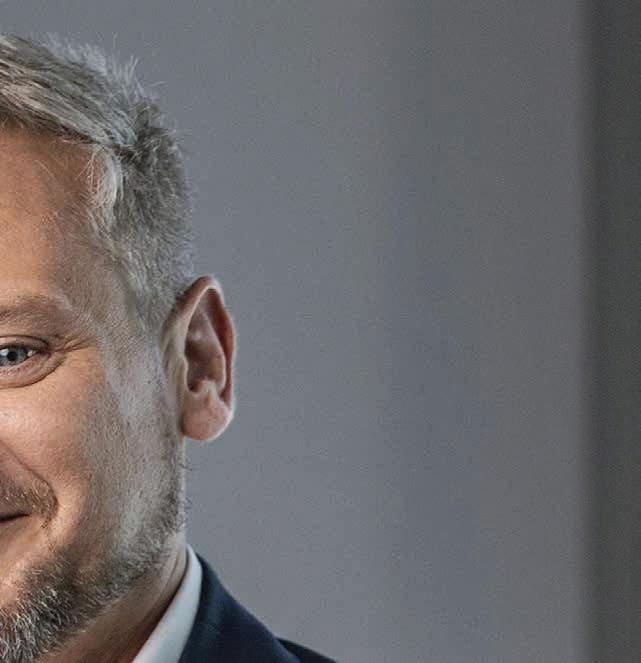



With a strong focus on customers' needs, this operator is offering cuttingedge technology at affordable prices.


DAMIR VRSAJKOVIĆ
Chief Product Officer at Telemach
At Telemach, we have a “customer first approach”. This means that we continuously monitor and analyze the market in order to gain in-depth insight into our customers’ needs, for Diplomacy&Commerce says Damir Vrsajković Chief Product Officer. In the first half of this year, we presented fixed fiber packages with exclusively gigabit speeds and the best prices delivering to our existing and potential customers unprecedented value for money, and most recently we also introduced a new portfolio of Telemach devices, adds Vrsajković.
You were recently appointed member of the Management Board and Chief Product Officer, following a respectable career and more than 18 years of experience in the telecommunications and consulting industry. Looking back, what are the main changes you have noticed in the last few years in the telecommunications market? How do you assess the current situation?
Digitization and the increasing use of smart devices and applications have significantly changed our habits and the way we communicate today. We rely more and more on applications that use large amounts of data, and the number of smart and connected devices is also growing. Customers expect flawless connectivity and superior customer experience – they want to be connected and available at all times. Consequently, the telco landscape had to adapt as well. The telecommunications market in Croatia was marked by a duopoly for several years. As a challenger, we have introduced a completely new dynamic - after a long period of stagnation, we were the first to implement the most modern 10 Giga optical network in Croatia. By doing so, we also encouraged the competition to start investing more seriously in optics. Thanks to strong investments, Telemach also significantly changed the mobile market, which in turn contributed to the fact that today we have one of the best mobile network infrastructures in the European Union.
Technological progress has never been faster and those companies that want to remain relevant must continuously innovate. How do you encourage progress and innovation at Telemach?
We live in a digital age marked by technological advancements, fast progress and fierce competition. Companies which are oriented towards providing services that bring the best value for money must adopt an intrapreneurship mindset. What I mean by that is that employees, from top to bottom, must be encouraged to cultivate an entrepreneurial spirit and focus on digital products, all while reducing unnecessary bureaucracy that raises costs. Because in the battle for each customer, those who are first and best - win. This forces us to be agile, to act and react quickly and always be one step ahead. At Telemach, we have a
“customer first approach”. This means that we continuously monitor and analyze the market in order to gain in-depth insight into our customers’ needs. We believe that this acquired knowledge is invaluable as it serves as a guide when it comes to designing services that meet their needs, improving customer experience and building a long-term relationship based on transparency and trust. I am proud that at Telemach we have managed to build a culture of entrepreneurship in a very short time, empowering employees to challenge the status quo and generate innovative ideas, all with the aim of creating additional value for customers. Focusing on initiatives aimed specifically at customers has helped us to grow our customer base, differentiate ourselves from the competition and in certain areas, stay far ahead.
WE WERE THE FIRST TO IMPLEMENT THE MOST MODERN 10 GIGA OPTICAL NETWORK IN CROATIA
Technological advancements have significantly changed the expectations and behaviors of the end consumer who are better informed and more demanding than ever. How do you develop new products and services for customers to adapt them to their growing demands and needs?
As mentioned earlier, we place great value on our customers’ preferences and needs and take them into account when designing our products and services. We continuously monitor and analyze the market and adjust our strategy accordingly. Today’s customers are well informed and tech-savvy, and they are increasingly pragmatic when it comes to choosing devices. Simply put, they want the most advanced technology at affordable prices. This was also confirmed by a recent survey which we conducted in cooperation with IPSOS. The respondents quite clearly emphasized that brand is no longer the most important criterion when choosing a device. Instead, they give greater priority to topnotch technical performance at a great price point. This trend already became apparent last year when customers reacted extremely positively to our first Telemach 5G phone. However, we are aware that technology is not an end in itself. Its very purpose is to improve the quality of everyday life, as well as facilitate everyday business operations and for that, it needs to be available to the greater public. Both in terms of devices and in terms of offering simple and affordable packages that meet the customers’ needs.
Recently we have seen many telecoms and technology companies launch phones that have their own brands. Telemach recently introduced a brand-new ecosystem of 5G devices, expanding its line of products.
What are the main advantages of this new line? What differentiates your products from similar devices on the market?
We have rounded off our 5G ecosystem, which includes a nationally available 5G network, unlimited data traffic, and affordable 5G devices. Customers have at their disposal the new Telemach 5G Pro phone, which offers the best price-quality ratio and is, in many respects, comparable to brands at a higher price range. We also offer a smart watch for children with a precise positioning system and wireless headphones of superior sound quality. The biggest value, however, is the fact that cuttingedge technology is now becoming widely available as customers no longer need to compromise between top-notch devices and affordable prices. We provide the ultimate 5G experience at the best price, without differentiating between new and existing customers. The same benefits are provided to everyone, which is not standard practice in the industry.
The telecommunications industry is extremely dynamic and competitive and seems to be constantly evolving. Which emerging technologies and latest technology trends can we expect to shape our foreseeable future?
There is no doubt that we can expect radical changes. As technology becomes cheaper, more omnipresent and immersive, our lives will be spent more and more online, using digital services and exploring alternate, digital and virtual worlds. Already today we are seeing the strong and fast impact that AI is having, and it is expected that its influence
IN TERMS OF CONNECTIVITY, FAST DIGITAL CONNECTIONS, SUPPORTED BY 5G TECHNOLOGY AND IOT, WILL BECOME INDISPENSABLE
will only gain momentum in the coming years, especially as it gets more integrated in all aspects of our lives. Robotization of processes, augmented and virtual realities powered by hybrid or multi-cloud platforms will allow companies to increase efficiency, reduce complexity and save costs. However, all of these come with certain risks and companies will need to invest in adequate protection and cyber security. In terms of connectivity, fast digital connections, supported by 5G technology and IoT, will become indispensable. In this sense, sophisticated telecommunication infrastructure will be key, as without it, none of these services will be possible. At Telemach, we are preparing for the future already today by building state-of-the-art infrastructure which will support the increasingly digital services that will be provided via networks.
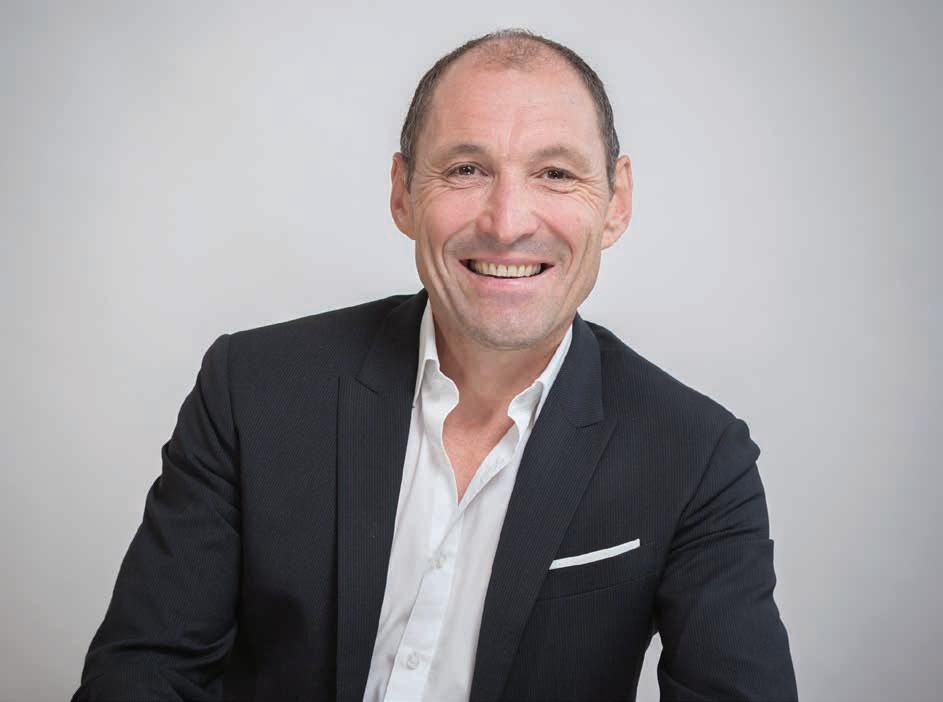
Historically, Croatia is one of the countries with an extremely high density of retail projects
CEO of Supernova Group
Retail parks have proven to be highly resilient to the challenges posed by the rise of online shopping, as well as in comparison to traditional shopping malls, especially in smaller communities, Markus Pinggera, CEO of Supernova Group, says for Diplomacy&Commerce. We also talked about the plans in Croatia as well as the markets in which they operate, and also about consumer habits and their needs.
The Supernova Group is based in Austria, and you have successfully implemented more than 200 projects in Austria, Croatia, Slovenia, Slovakia, and Romania. Although all markets are part of the EU, how would you rate business in the
mentioned markets, and what are the differences between them?
The operations of the Supernova Group in various EU countries bring unique challenges and opportunities. While all these markets are part of the EU’s common market, each has its specific characteristics.
have therefore driven our expansion in Austria through acquisitions. Nevertheless, the Austrian market is very stable, which is also reflected in the sales figures of our tenants.
In Croatia, Slovenia, Slovakia, and Romania, despite these countries also being part of the EU, there are differences in consumer
SUPERNOVA GROUP NOW HAS A TOTAL OF EIGHT CENTERS IN CROATIA WITH THE PRESTIGIOUS BREEAM CERTIFICATION
Austria is generally characterized by a very high density of retail. Due to the increasing restrictions imposed by the authorities, it is de facto impossible to undertake new Greenfield developments. We
behavior, local regulatory frameworks, and market structures. For instance, in Croatia, we have seen saturation in the large shopping mall segment in recent years, which led us to shift our focus
toward retail parks in smaller towns. These parks have proven to be highly resilient and are in high demand among the local population.
Romania was and still is one of the countries with the highest potential both in trade and in the development of new projects. Especially during the pandemic, Romania was the country that was least affected compared to the other countries of the former Eastern bloc. There is a great need for modern shopping facilities in the form of retail parks, especially in medium-sized cities.
Additionally, in Austria, Slovenia, and Croatia, there is a noticeable shift towards higher quality offerings, with visitors seeking not only shopping but also entertainment and hospitality. Our Centar Kaptol in Zagreb is organized around this concept. It is the first center in Croatia with a premium offer that places equal emphasis on shopping and lifestyle.
Is the Supernova Group planning additional expansion, and what are your guidelines or parameters when determining which markets to expand your business into?
The Supernova Group is always seeking opportunities for further growth, but we focus on sustainable projects and stable market conditions. When evaluating new markets, key parameters include economic growth, consumer demand, local regulations, and longterm real estate prospects.
The most important aspects, however, are the expansion plans of our anchor tenants and their sales performance in the respective country. Our only source of income is rental income. The success of the retailers is therefore also very closely linked to our future income from rents. If a retailer is not successful, it cannot pay adequate rents.
We have therefore often combined market entries with those of international tenants.
The second important factor is the legal framework in the countries. Land costs, construction prices and also the legal requirements are a key factor.
The third factor is the financing conditions. Which banks are prepared to finance retail projects and under what conditions? In Italy, for example, it is currently almost impossible to find a bank that finances retail. Sometimes for incomprehensible reasons.
What are your plans in Croatia, given that, in addition to large shopping malls, you are also investing heavily in retail parks? In our view, the potential in large to medium-sized cities has already been completely exhausted and no longer allows for any meaningful expansion.
What we are seeing now is that development is starting in small towns and this is associated with increasing risk.
The costs for a retail park (financing, construction and property costs) are no lower than in larger cities. On the other hand, tenants in these city sizes are not prepared to pay the rents to generate a reasonable yield.
We have therefore also switched to acquisitions in Croatia, but this does not mean that we are not always reviewing sensible options.
Just a few days ago, we opened our new retail park in Jastrebarsko, near Zagreb. Supernova Jastrebarsko spans 4,673 square meters, and in addition to boosting the economic growth of Jastrebarsko and the surrounding areas, it will improve the daily lives of local residents by offering practical, affordable, and diverse shopping options.
How competitive are retail parks compared to large shopping malls and the growing number of online stores? How do you respond to these new trends and consumer habits?
The key advantage of retail parks is the ability to quickly access each store, reducing the need to pass through large shared spaces— something that was especially valued during the pandemic.
The biggest advantage, however, is for the tenants. Both the rents and the ancillary costs of a retail park are significantly lower than those of a shopping center. If you calculate average ancillary costs of around €5 to €6 for a mall, they are around €2.5 for a retail park.
A retail park therefore makes more sense than a shopping mall, especially if retailers in small towns have lower sales estimations. It can also be seen as a risk minimization for both the developer and the retailer.
Otherwise, the trend in malls in recent years has been towards entertainment and gastronomy. The combination with the shopping experience is becoming increasingly important.
However, the proportion of gastronomy and entertainment is significant. A few years ago, big food courts and jump parks were
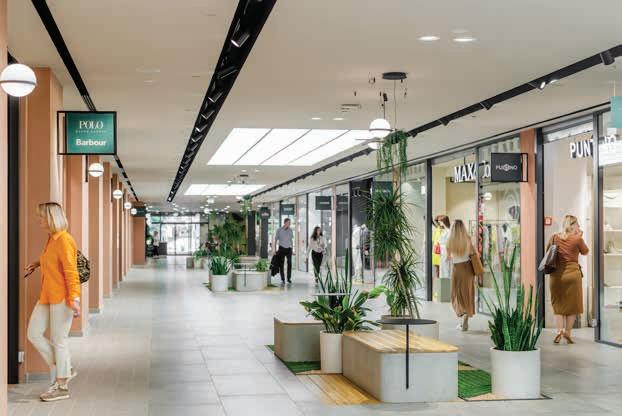
THE KEY ADVANTAGE OF RETAIL PARKS IS THE ABILITY TO QUICKLY ACCESS EACH STORE, REDUCING THE NEED TO PASS THROUGH LARGE SHARED SPACES
seen as the savior, but it has become clear that the failure rate for these tenants is very high and that letting is sometimes very complex and expensive.
How do you assess the retail industry in Croatia, and can we expect stagnation, decline, or market growth in the future? In which direction do you think it will develop?
We believe that the retail industry in Croatia will continue to grow, with a particular focus on sectors such as retail parks. I think that the retail industry in Croatia still has a lot of room for improvement.
Areas outside the major urban centers in particular have development potential. However, we are also seeing a trend that is already on the rise in other countries, namely the tendency towards discount and “price-value” retailers.
Whereas we used to see upscale brands in city centers, brands such
as Tedi, KIK and Action are being seen increasingly more often. We therefore expect stable growth, but with the necessary evolution of offerings to meet the needs of modern consumers.
What are your plans for 2025, and how much does the unstable environment (inflation, wars) affect the realization of these plans?
Although global crises such as inflation and wars may cause shortterm challenges, our focus for 2025 remains on long-term development, innovation, and improving the experiences at our existing centers.
However, it is above all the longer-term problems that affect both us and the retail companies. In addition to the inflation already mentioned, it is above all the increases in labor costs and logistics costs (due to the more difficult passage through the Red Sea) that
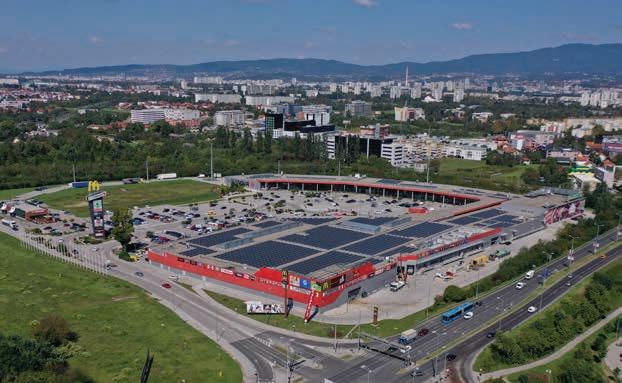
are also having a major impact on retailers. This means that uncertainty is still very high because nobody knows what tomorrow will bring. It is essential to act with foresight.
As far as development is concerned, construction costs are still at pre-war levels. But financing costs also continue to have a negative impact on the property sector.
As an international real estate company with over 20 years of experience, you see yourselves as a developer of sustainable growth and bear a special responsibility towards stakeholders, the environment, and society. What does your ESG strategy consist of, and what are its goals?
From the very beginning, and especially in recent years, Supernova Group has been focused on a green future. The foundation of responsible business towards our stakeholders, society, and the environment lies in sustainable and environmentally friendly development, supported by the Supernova Green Energy sustainability program. Our goals include reducing the carbon footprint of our properties, using renewable energy sources, and developing green spaces within and around our centers, with the aim of achieving complete carbon neutrality by 2028.
The Supernova Green Energy program also includes installing photovoltaic systems to produce our own electricity on the roofs of our centers. In Slovenia, Austria, and Croatia, 35 solar power plants have already been implemented on the roofs of shopping centers, producing 23,400 MWh of green energy per year. Over the next two years, the group plans to expand the installation of solar panels to all remaining shopping centers where it is technically feasible.
In terms of our sustainability achievements, I would like to highlight that the Supernova Group now has a total of eight centers in Croatia with the prestigious BREEAM certification, which confirms our commitment to environmentally friendly and sustainable spaces.
We also value our contribution to local communities by creating jobs and supporting local initiatives. We believe that long-term sustainability is not just a corporate responsibility but also a business necessity that benefits both us and the communities in which we operate.
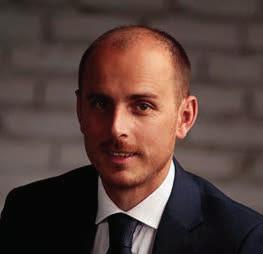
Commercial Director Balkans at De’Longhi Group
To succeed in the Balkan market, businesses need to navigate a landscape where tradition meets modernity. Offering products that respect local customs while embracing innovative design and sustainable practices can help businesses build strong relationships and establish a lasting presence, for Diplomacy&Commerce says Peter Ferluga, Commercial Director Balkans at De’Longhi Group. He also talked about the expectations of Italian investors to Croatia, the business environment, but also presented the products from the De’Longhi Group portfolio in more details.
As an Italian company that sells, among other things, coffee machines, and we know that in Italy drinking coffee is a special tradition, how difficult was it for you to bring the story of coffee and flavors closer to people in this region and what was your biggest challenge?
As an Italian company that sells coffee machines, we are deeply aware of the cultural significance of coffee in Italy, where it’s not just a beverage but a cherished tradition. Italians have a deep connection with coffee, from their morning espresso ritual to social moments at the local bar. This strong tradition can present both an opportunity and a challenge.
On the one hand, Italians have high expectations for the quality of coffee and the experience surrounding it, which has pushed us to constantly innovate and offer machines that replicate the rich, authentic flavors they expect. On the other hand, bringing something new to such a well-established culture comes with challenges. Our biggest challenge has been to balance tradition with innovation—introducing new
The
Balkan market is a fascinating blend of tradition, evolving design preferences, and a business environment that is rich with opportunity.
technologies and products while respecting the heritage and rituals of Italian coffee culture.
What would you single out as the special features of this market when we talk about tradition, design and business?
There are several key features that make this region stand out and one of it is tradition: Much like in Italy, coffee holds a special place in the daily lives of people in the Balkans. However, in the Balkans, coffee culture is deeply rooted in social gatherings, family rituals, and commu-
shifting, which opens up new avenues for expansion and innovation. However, when it comes to market differences, we notice both convergence and divergence, depending on specific factors.
2024 will be a year where we’ll need to continue balancing these dynamics. While some markets are aligning with global trends, others retain their unique local flavors and needs. By staying flexible, respecting these differences, and adapting our approach to each market, we’re confident we can continue to grow and meet the diverse demands of the region.
THE MOST INTERESTING AREAS FOR ITALIAN INVESTORS INCLUDE TOURISM, MANUFACTURING, ENERGY, AND INFRASTRUCTURE, AS WELL AS THE FOOD AND BEVERAGE INDUSTRY
nity interactions. The preparation of traditional “Turkish” or “domestic” coffee, for example, is a cherished ritual, passed down through generations. This makes consumers in the region highly attached to the authentic and communal aspects of coffee drinking, valuing rich flavors and shared experiences. When introducing products here, it’s important to respect these traditions and offer solutions that fit seamlessly into the way people have been enjoying coffee for centuries.
How do you assess the 2024 when we talk about the business at your company? Are the differences between the markets ( region) you are responsible for decreasing or deepening?
For 2024, we see a year of both opportunity and complexity for our business in the Balkans. The region is evolving rapidly, with economic growth and consumer expectations
The De’ Longhi Group is one of the world’s leading players in small domestic appliances associated with the world of coffee, the kitchen, air conditioning and home care. How challenging is it to combine quality, design, tradition in one? Combining quality, design, and tradition is a core challenge but also a strength for the De’ Longhi Group. Quality is non-negotiable; our products must perform flawlessly and last. Design, rooted in our Italian heritage, blends style with functionality, creating appliances that enhance any home. Tradition, especially in coffee, is key—our products respect cultural rituals while embracing modern innovation.
The challenge lies in balancing these elements, but it’s what sets us apart. By staying true to our values and continuously innovating, we create products that are functional, stylish, and deeply meaningful to our customers.
You are also a member of the Management Council of the Italian-Croatian Chamber of Commerce. How do you assess the business climate in Croatia for investors and what do they expect from the state to increase the level of investment?
Investors still expect reduced bureaucracy, improved infrastructure, and better workforce development to fully realize the country’s potential. Expanding incentives for innovation and sustainability, along with more flexible labor regulations, would also encourage higher levels of investment.
Italy is the most important foreign trade partner of Croatia and many Italian companies do business in our country. Which areas of business are the most interesting to investors and what do you see as your contribution to that within THGK?
Italy is indeed Croatia’s most important foreign trade partner, and Italian companies are active in several key sectors. The most interesting areas for Italian investors include tourism, manufacturing, energy, and infrastructure, as well as the food and beverage industry. These sectors offer strong potential due to Croatia’s strategic location, EU membership, and growing economy.
Within THGK, our contribution lies in fostering these business connections by supporting Italian companies in navigating the Croatian market. We focus on building partnerships, providing insights into local regulations, and facilitating investment in sectors where Italian expertise aligns with Croatian growth opportunities. By bridging the two markets, we help Italian investors succeed and contribute to the ongoing economic collaboration between Italy and Croatia.
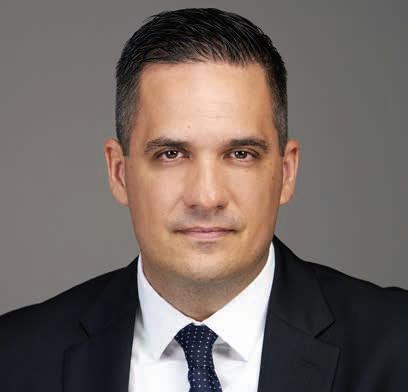
Partner at CBS International, member of Cushman & Wakefield Alliance
In today’s global economic environment, increasing emphasis is placed on sustainability, responsibility, and business transparency. Several key challenges arise for companies when implementing ESG strategies, particularly when it comes to construction and renovations of real estate, said Predrag Tutić MRICS, Partner at CBS International, member of the Cushman & Wakefield Alliance, in an interview for Diplomacy&Commerce. Additionally, Mr. Tutić discussed the challenges in the real estate industry, market development, and Croatia’s advantages compared to the region and Western Europe, as well as the representation of investments and construction in Zagreb itself.
CBS International is a leading company in the region and this part of Europe when it comes to real estate. How do you assess the year 2024 in terms of real estate market development in Croatia? Where does Croatia stand compared to its surroundings, and which countries could we compare it to in terms of the real estate market? The sectors that attracted the most investment were logistics, followed by the office space market, with three office buildings sold in Zagreb, which has once again placed a strong focus on this sector. When we compare Croatia to neighboring countries, we see that we still have an advantage and significant interest from foreign investors in hotels and generally in the development of new tourism projects, and we expect this trend to continue in the coming years. Additionally, other sectors will also be in focus for the development of new projects, such as the office space market and the logistics sector, which still holds great potential, though it is somewhat dependent on infrastructure development, specifically the Port of Rijeka and the modernization of the railway system.
This year has been marked by a somewhat higher volume of transactions compared to previous years, and we expect to exceed EUR 550 million in commercial real estate transactions.
It is important to note that Croatia still offers very good returns on commercial real estate compared to some larger markets in Western Europe. It is a stable and liquid market, which has recently also attracted a greater number of domestic investors to turn to such investments.
As the business center and capital city, Zagreb stands out from the rest of the country, including the coastal areas. How prevalent are investments, construction activities, and what is the availability of office space and land on the market? What can we expect regarding prices?
Zagreb has 1.55 million square meters of office space, making up 90% of the total market in Croatia, and all of the new developments totaling 100,000 square meters will be in Zagreb. However, when we look at the development of new retail spaces, particularly retail park formats, we see greater development happening in secondary locations and cities.
In the coming years, the development of new hotel facilities will be more focused on the coast, in areas like Zadar, Split, and Dubrovnik, where we will finally see new developments featuring top global brands. As for rental prices in commercial real estate, they have increased by 10% over the past year due to high demand, with a vacancy rate below 2% across all sectors. Land prices have also risen and are expected to continue growing because, unfortunately, urban development and the planning of new spaces in Zagreb are very
limited. As a result, the currently available land suitable for construction is extremely attractive.
Lease renewal services have become increasingly popular in the real estate industry to help landlords and tenants simplify the leasing process and maximize their benefits. Why are lease renewal services beneficial for clients, and what advantages do they offer in real estate transactions?
Yes. In Croatia, lease renewal services have become increasingly popular among our clients, which is a standard practice in Western markets that many international companies typically utilize. Our clients benefit primarily from having a professional team that negotiates new lease terms on their behalf and compares them with market standards. This process helps identify optimization opportunities during contract extensions, which can bring specific benefits to the client, such as reducing risks associated with unfavorable terms or conditions in the contract. Ultimately, this ensures an optimal agreement for both parties and fosters a longterm, quality relationship between the tenant and the landlord.
What do you see as the biggest challenges in your industry and how can they be addressed?
The biggest challenges for our industry are directly related to the development of the real estate market in Croatia, primarily the lack of new projects. The cause of this

is the slow development of infrastructure, very poor urban planning, and a lack of clearly defined city strategies, leading to disjointed and ad-hoc construction.
Unfortunately, local authorities have yet to embark on a long-term solution to this problem, which includes social benefits, ecological sustainability—currently a top global issue—and essential economic development and sustainability. To address these challenges, it is crucial to involve experts from all relevant fields.
In today’s global economic environment, there is an increasing emphasis on sustainability, responsibility, and business transparency. ESG, which stands for environmental, social, and governance factors, has become a key indicator for assessing the success and longterm value of companies. From your extensive experience, what challenges do companies face when implementing ESG, and how does this impact their operations, particularly regarding the construction and renovation of real estate?
The first challenge relates to compliance with regulations and standards, which often change or vary by market. Companies must be proactive and continuously monitor changes to ensure compliance with the latest requirements, which can be complex and costly, especially for large projects involving multiple phases or locations.
The second significant challenge is linking sustainability with financial outcomes. The third challenge lies in transparency and reporting on ESG results. Standardized reporting is still not fully developed, and companies often struggle with how to quantify and communicate their achievements.
Regarding construction and renovations, ESG criteria increasingly influence design, material selection, and resource usage. There is growing pressure to certify buildings according to standards such as DGNB, LEED, or BREEAM, which can enhance the market value of properties but requires additional resources and expertise.


Relations between our countries are historically deep, traditionally friendly and free from any unanswered questions and unresolved issues, including the similarities of both languages
H.E. HANA KOVÁČOVÁ, Ambassador of the Slovak Republic to Croatia
In 2023, we crossed the threshold of 1 billion Euro in mutual trade. Tourism has a special place in our relations, Slovak tourists are “in love with Adriatic Sea”. With excellent political cooperation at all levels, these are just some of the facts that show our excellent relations, for Diplomacy&Commerce says H.E. Hana Kováčová, Ambassador of the Slovak Republic to Croatia .
Relations between Slovakia and Croatia have been continuously developing. Both countries are members of the EU and NATO. How would you evaluate the relations between the two countries today and where is there room for their improvement?
On October 6, 2024, this was stated unisono by our Ministers of Foreign and European Affairs Mr. Juraj Blanár and Mr. Gordan Grlić Radman in Bratislava.
After all in a year 2013, when Croatia became a Member of European Union Slovaks and Croats finally met again together under common roof of our “European house”. Slovakia and Croatia have



often shared similar destinies being part of a the common political, cultural and intellectual space. As Croatia celebrated 10th Anniversary of Membership 2013, Slovakia celebrated this year 20th Anniversary.
On 1 February 2012, Slovakia ratified the Treaty on the Accession of the Republic of Croatia to the European Union as the first EU Member State. Before that Slovakia inten-



Successful Euro-Atlantic integration offers great potential to intensify our cooperation and dialogue at all levels. Since Croatia became Schengen member and adopted Euro on 1 January 2023, Slovakia strongly and continuously supports Croatia´s OECD membership ambition. We have equally important dimensions, bilateral as well as multilateral.
THE INTEREST OF SLOVAK COMPANIES AND INVESTORS IN CROATIA IS FOCUSED ON AREAS OF LOGISTICS, ENERGY, TOURISM, MANUFACTURING INDUSTRY, MODERN SPHERES OF INNOVATION, GREEN TECHNOLOGIES AND INTELLIGENT SOLUTIONS
sively supported Croatia on its integration path at the opening of accession negotiations in 2005 at the political and expert level, especially by transferring experience from reform and integration processes. As part of sharing the experience of the Slovak Republic from the first Presidency of the Council of the European Union in 2016, we have welcomed Croatian colleagues into Slovak Presidency Team 2016.
Slovaks are small nation with big heart. Our long-term partnership is the great potential for the closest cooperation, synergy of attitudes and processes. Whether it was during the Civil War of 19911995, when Slovak members of UNPROFOR helped Croatian people. Recently, on 26 April this year was placed the Memorial plaque over the River Pakra close the Pakrac town.



And I cannot forget to mention the recent assistance from Slovak Air Forces for the citizens of Croatia during the crisis evacuation from Lebanon started on October 4, 2024. The Armed Forces of the Slovak Republic are always ready to help if necessary, especially in such security-demanding situations. It was a Crisis Plan of the Slovak Ministries of Foreign and European Affairs, the Ministry of Defence and the Interior, and it was the result of a well-set system of long-term preparation of preventive measures.
Tourism is the backbone of the relationship between the two countries. Many of your citizens visit Croatia. What do the numbers show, how many Slovaks visited Croatia this year /last year?
Tourism has a special place in our relations, Slovak tourists are “in love with Adriatic Sea”. In 2023, overall, 519 270 Slovak tourists visited the beautiful Adriatic coast and the trend of Slovak tourism to Croatia is still rising. But, vice versa, we are missing Croatian tourists in Slovakia.
On the other side, in the year 2023 only 17,4 thousand Croatian tourists visited Slovakia. We would like to have more Croatian tour-
ists in Slovakia, in our mountains, caves, lakes. Slovakia also offers numerous historical castles, chateaux and as well as winter sports resorts with special wellness programs or simply just mountains in its allseasonal beauty. Am more than sure Croats could more explore and enjoy the proverbial Slovak hospitality.
Economic cooperation, apart from tourism, is also on the rise. Which segments of the economy and which areas have potential for improvement? How much are Slovak investments to Croatia and are there any Croatians to Slovakia? Mutual economic cooperation between Slovakia and Croatia and its potential is constantly growing. In 2023, we crossed the threshold of 1 billion Euro in mutual trade. Despite this, there is certainly potential space for further development of mutually beneficial trade.
The interest of Slovak companies and investors in Croatia is focused in the areas of logistics, energy, tourism, manufacturing industry but also in the modern spheres of innovation, green technologies and intelligent solutions.
From the point of view of direct foreign investments, Slovakia ranks 18th in the ranking of foreign investors in Croatia with investments worth 468 million euros, with a year-on-year increase of 93 million euros. Among the largest investments are industrial real estate, plant for the production of railway vehicles Gredelj Zagreb, Cogeneration plant Ogulin, Hotel Complex Božava and on Krk Island.
What is the position of Your country on global issues and how to solve them, when we talk about the war in Ukraine and the Middle East?
Every war will end finally at the negotiating table. Ukraine is our very closed neighbour. Prime Ministers of Slovakia and Ukraine have met already three times this year. After meeting in Užhorod on 24 January and 11 April in Michalovce (Slovakia) Robert Fico and Denys Shmyhal met on 7 October 2024 again in Užhorod. On 11 April 2024 Prime Ministers Robert Fico and Denys Shmygal signed Roadmap for joint actions to strengthen relations between Slovak Republic and Ukraine based of a mutual trust and respect, and readiness for further joint cooperation, based on International Law, including the key provisions of UN Charter, respect for territorial integrity and sovereignty of Ukraine within its internationally recognized borders of 1991.

FINISHING MY MANDATE, BEFORE LEAVING CROATIA I HAVE PLAN TO PREPARE TEXT OF BOOK ABOUT SPECIAL PLACES OF INTERESTS WHERE GREAT SLOVAK PERSONALITIES LIVED ON THE TERRITORY OF CROATIA.
In Joint Declaration of the Government of the Slovak Republic and the Government of Ukraine from 7 October 2024 both sides welcomed the Outcome of the First Global Peace Summit held from 15 to 16 June 2024. The Slovak Republic confirmed readiness to contribute to the implementation of specific points of the Peace Formula by President of Ukraine Volodymyr Zelenskyj and participate in the relevant thematic conferences, as well as in the Second Summit, with the aim to restore a comprehensive, just and lasting peace for Ukraine in accordance with norms and principles of the International Law.
Slovakia welcomes the adoption of the negotiating framework and holding of the first Intergovernmental Conference on accession of Ukraine.
Based on the Joint Declaration from 7 October 2024 Slovakia and Ukraine will cooperate on Energy Security, Cross-Border Cooperation and Security, Economic and Trade, Cooperation in the Field of Education, Youth and Sport as well as in the Field of Healthcare.
Slovakia supports efective international efforts in Middle East aimed at an early ceasefire and an immediate solution to the desperate humanitarian situation in Gaza and the release of the hostages.
Slovak government categorically condems the attack by Hamas.
There is an immediate need to prevent human suffering in Gaza and to meet the basic and essential needs of the civilian population. We repeatedly call on settlement that provides better future for Israelis and Palestinians.
Slovakia wellcomes mobilization of humanitarian aid for Lebanon and additional earmarking of EU financies. My government responded to Lebanon´s request among first EU Member States and delivered material humanitarian aid to the country on 4 October 2024.
How do you see the relations between the two countries in the future, and within that, how do you see the EU in the future? What is your position on the enlargement of the Union? Global challenges, such as energy crisis, migration, war in Ukraine and Middle East have had remarkable and profound impact within. The same way this challenges serve unconditional need for our stronger cooperation.
Slovakia is a long-term supporter of merit-based EU enlargement. This is our point of departure. The decision of the European Council of December 2023 was truly historic. Slovakia warmly welcomes the recent decisions to open negotiations with
Bosna and Hercegovina, Ukraine and Moldova. The EU has once again proven that it is capable of thinking and acting strategically, that enlargement is a geostrategic investment in the peace, security, stability, and prosperity of our continent.
To help candidates is conditio sine qua non. Slovakia stands ready to continue providing a complex assistance to all candidates related to the EU integration. Helping candidates is in interest of all Member States. We are also aware of the challenges that the EU will face as part of further enlargement and the need to thoroughly prepare internally for them.
What would you single out as special points of interest and sights in Croatia that you like and would recommend to someone who comes to visit us?
I definitely also recommend beautiful Croatian mountains such as Medvednica, Velebit, Gorski Kotar, Papuk, or other wonderful corners of Croatia, including charming Slavonia.
I would like to focus on those places in Croatia where our compatriots live and are connected with Slovaks and our common history. Tracks of Slovaks in Croatia are not only along the Adriatic coast, but also inland. I very much appreciate the work of the Joint Slovak-Croatian Commission of Humanities, which seeks common intersections and synergies of our common history. This year was held in Slovak town Košice already the 6th meeting of this Commission.


In Korea, there is a saying that even mountains and rivers change in ten years. Over this time, the Korea-Croatia relationship has gained much greater depth.
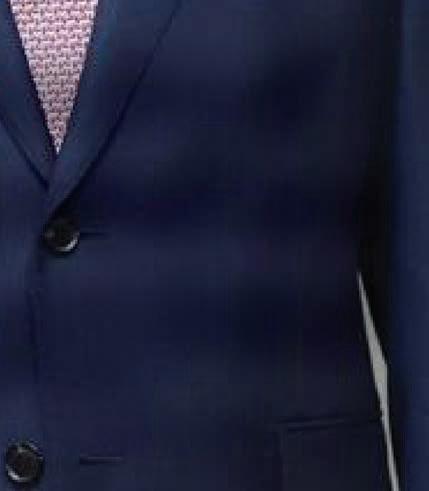
H.E. HONG SUNGWOOK
Ambassador of the Republic of Korea to Croatia
As of August 2024, Korea’s investment in Croatia was the second highest among the former Yugoslav federation states after Romania. Also, Croatia, often referred to as the “Jewel of the Adriatic Sea”, is a popular European destination for many Korean travelers. All this, and much more, affects the good relations between the two countries, including the political ones, for Diplomacy&Commerce says H.E. Hong Sungwook, Ambassador of the Republic of Korea to Croatia.
Relations between Korea and Croatia have been continuously developing since the official establishment of diplomatic relations between the two countries in 1992. How would you evaluate the relations between the two countries today and where is there room for their improvement?
In October 2023, Korea’s Prime Minister Han Duck-soo made the first official visit to Croatia by a Korean Leader since the establishment of diplomatic relations. In recognition of the development of the bilateral relations over the past three decades, the two countries elevated their ties to a ‘Comprehensive Future-oriented Partnership’ and adopted a Joint Statement. This Joint Statement emphasizes the commitment of both nations, which embrace shared values such as democracy, the rule of law, and human rights, to enhance cooperation and promote dialogue spanning various sectors, including economic collaboration in areas such as maritime logistics, energy, the green transition, sustainable development, science and technology, education, cultural exchanges, and security.
Of particular note, there have been active high-level exchanges this year. In February, former National Assembly Speaker Kim Jin-pyo visited Croatia for discussions with Speaker Gordan Jandroković. In April, Marko Filipović, Mayor of Rijeka, visited Busan to sign a Friendship City Memorandum of Understanding, aimed at fostering close collaboration in maritime logistics.
Furthermore, increased people-to-people exchanges and a deeper mutual understanding of each other’s cultures have strengthened the bilateral relations. A growing number of Koreans are becoming familiar with or visiting Croatia. Many Croatians have developed an appreciation for Korean cuisine, including kimchi, as well as K-Pop, K-Dramas, and K-films. Indeed, in May, T’’way Air commenced direct flights between Seoul and Zagreb, further facilitating exchanges between the two nations.
From an economic perspective, Croatia’s accession to the Eurozone and Schengen in 2023 has brought greater potential for collaboration in logistics and infrastructure. Capitalizing on the opportunities, Korean companies such as Hankook Tire & Technology and Taewong Logistics have established subsidiaries or acquired a local firm in Croatia this year, positioning themselves as gateways to Eastern Europe, with further Korean investments anticipated in the country.
Tourism is the backbone of the relationship between the two countries. Many of your citizens visit Croatia. What do the numbers show, how many Koreans visited Croatia this year / last year?
Croatia, often referred to as the “Jewel of the Adriatic Sea”, is a popular European destination for many Korean travelers. The country consistently features in group travel products offered by leading Korean tourism companies. A notable turning point occurred in the fall of 2013 when a television program showcasing well-known Korean actresses visiting Croatia (‘’Noonas over Flowers’’) gained popularity, vividly introducing Croatia’s stunning tourist attractions to a Korean audience.
From 2017 to 2019, over 400,000 Koreans visited Croatia annually, with well-known destinations including Zagreb, Dubrovnik, Split, Zadar and Plitvice Lakes National Park. In fact, the latter and Jeju island in Korea signed a Memorandum of Understanding and cooperaton in 2023.
Even despite travel restrictions in 2021 due to COVID-19, 5,817 Koreans still visited Croatia. In 2023, this number surged to 150,000, marking a 260 % increase from 2022, with a total of 110,000 Koreans having visited by July of 2024. Starting May 2024, T’way Air is operating direct flights, enhancing connections between the two countries. We envisage increased exchanges and hope to welcome many Croatians to Korea.
Economic cooperation, apart from tourism, is also on the rise. Which segments of the economy and which areas have potential for improvement? How much are Korean investments in Croatia and are there any Croatians in the Republic of Korea?
As of August 2024, Korea’s investment in Croatia was the second highest among the former Yugoslav federation states after Romania. In 2019, Hyundai Motor Company invested 80 million Euros in the Rimac Group, a Croatian electric super car manufacturer, and from 2021 to 2023, four small and medium-sized transportation companies entered Eastern Europe to utilize the logistics network. In 2024, investments related to logistics continue, including the establishment of a T’way Air branch, the establishment of Hankook Tire & Technology and Taewoong Logistics’ acquisition of Croatian transportation company ‘LA Trans d.o.o’.
The total trade volume between Korea and Croatia is small compared to Poland, the Czech Republic, Hungary, and Slovakia, where largescale production bases of Korean companies
are located. This is because Korea has strengths in manufacturing such as automobiles and batteries, and exports a large volume of parts related to these. Most of the goods that account for a significant portion of trade between Korea and Croatia are export parts to the central and eastern europe. Considering this, the industry with the greatest potential for Korea and Croatia to continue to seek shared efforts is logistics. It was against this background that the Port of Rijeka and the Busan Port Authority signed an MOU in 2023 to share experiences related to port operation and development, develop port logistics infrastructure and jointly invest, and increase cargo volume between ports.
In order to seek economic and business cooperation opportunities between the two countries, the Korean Embassy in Croatia has been hosting the Korea-Croatia Business Forum since 2013. And in 2014, it formed the KoreaCroatia Business Club (Chairman: Zoran Horvat) with a focus on Croatian businesspeople interested in trade and investment cooperation with Korea. In 2024, the ‘Korea-Croatia Business Association’, a gathering of Korean businesspeople interested in investing in and entering the Croatian market, was launched. And in June, the first Croatia-Korea Business Forum was hosted by the Croatian Embassy in Seoul, with the participation of Croatian companies such as Orbico, Podravka, InfoViP, Dizconcept, Baltic, Krasi, PIB Extra, and Uniline. Moreover, a cooperation MOU has been signed with the Croatian-Korean Business Club. We trust that through active exchanges between the business associations of both countries, both Croatian investment in Korea and Korean investment in Croatia will be boosted.
How do you see relations between Croatia and the Republic of Korea in the future?
The relationship between the two countries is poised for further development in various dimensions, including the political and economy realm, and cultural exchanges. This progress is facilitated by ongoing discussions aimed at enhancing diplomatic ties and deepening cooperative efforts. An increase in mutual visits - whereby numerous Croatians travel to Korea, and vice versa - will also contribute to a closer relationship. Currently, Korea and Croatia are in the process of finalizing a working holiday agreement, anticipated to be completed within this year. This initiative is expected to provide young individuals from both nations with valuable opportunities to immerse themselves in each other’s cultures.
What would you single out as special points of interest and sights in Croatia that you like and would recommend to someone who comes to visit us?
There are so many beautiful places in Croatia that it is hard to pick only one place. Personally, I love to visit Rovinj and the Island of Rab. And I recommend visiting wineries to taste Croatia’s delightful wines. I think that Croatia’s delicious food such as olive oil, truffles, cheese, Kulen sausage, and steamed octopus will be as fabulous and unforgettable as the beautiful scenery of Croatia.
The President of the Republic of Croatia, Zoran Milanović, received letters of credit from the ambassadors of the Hellenic Republic, Sri Lanka, Turkey, Argentina, Ireland and Romania.

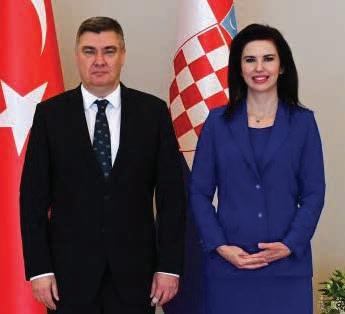
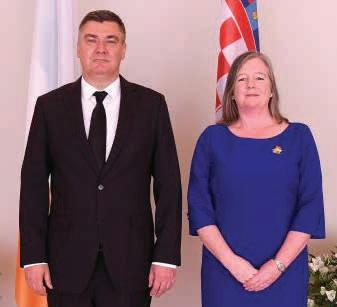
H. E. Athanassios E. Paressoglou, the ambassador of the Hellenic Republic in the Republic of Croatia, based in Zagreb, presented his credentials to President Milanović. The ambassador was accompanied by Minister Counselor and Charge d’Affaires Elena Triantafyllou and Counselor Michail Charokopos.
H. E. Lanka Varuni Muthukumarana, Ambassador of the Democratic Socialist Republic of Sri Lanka to the Republic of Croatia, based in Berlin, presented her credentials to the President of the Republic of Croatia. The ambassador of the Democratic Socialist Republic of Sri Lanka was accompanied by the honorary consul of the Democratic Socialist Republic of Sri Lanka in the Republic of Croatia Zlatko Mateša.
H. E. Hayriye Nurdan Erpulat Altuntaş, Ambassador of the Republic of Turkey to the Republic of Croatia, based in Zagreb, presented her credentials to the President of the Republic of Croatia, Zoran Milanović. The ambassador of the Republic of Turkey was accompanied by first secretary Onur Yay and third secretary Müzeyyen Inci.
H. E. María Lorena Capra, Ambassador of the Argentine Republic to the Republic of Croatia, based in Budapest, presented her credentials to the President of the Republic. The ambassador of the Argentine Republic was accompanied by adviser and chargé d’affaires Ricardo Andrés Vignolo.
H. E. Wendy Dorman-Smith, Ambassador of Ireland to the Republic of Croatia, based in Zagreb, presented her credentials to the President. The Ambassador of Ireland was accompanied by Chargé d’Affaires Frances O’Donovan and the Ambassador’s brother and sister Andrew Dorman-Smith and Daphne Dorman-Smith.
H. E. Daniela Mihaela Cămărășan, Ambassador of Romania to the Republic of Croatia, based in Zagreb, presented her credentials to the President of the Republic of Croatia. The Ambassador of Romania was accompanied by Minister Counselor and Chargé d’Affaires Ştefania Carmen Florea and Minister Plenipotentiary Flavius-Cosmin Halacescu.
President Milanović was accompanied by advisor to the President of the Republic of Croatia for foreign and European policy Neven Pelicarić, director of the Directorate for Political Affairs of the Ministry of Foreign and European Affairs Petar Mihatov and secretary of the Cabinet for Foreign and European Policy of the Office of the President Ivan Mutavdžić.
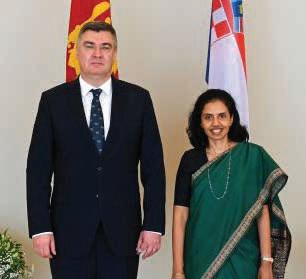
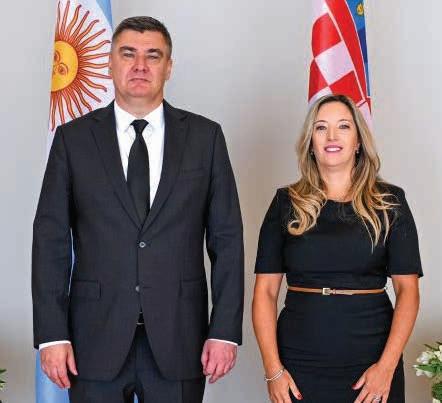















There are increasingly fewer companies with female CEOs and increasingly more companies that have no women in management, despite the fact that women have a higher level of education than men.

According to data from the Croatian Employers’ Association and the report from the Croatian Financial Services Supervisory Agency (HANFA) for 2022, the position of women in management structures of Croatian companies remains compromised. Only 16% of women hold management positions, while their share in supervisory boards is slightly higher at 23%. Alarmingly, these percentages are stagnating, and in some segments, we are even seeing a deterioration of the situation. HUP supports “women’s quotas” as a key step towards a more inclusive business world. The representation of women in the management of companies listed on the domestic stock exchange has seen a slight increase over the last decade, but the figures are still far from the European requirement that the underrepresented gender occupies one-third of all managing positions in a company.
Recent data from the CROBEX index shows that the share of women
in management positions in 2024 is 19.4%, which is a decline from 22.2% in the same period in 2023. In comparison, the representation of women in the management of the 350 most significant companies listed on the London Stock Exchange, according to The Female FTSE Board Report for 2023, is 40% and shows a growth trend. According to data from the European Institute for Gender Equality in 2023, the share of women in the management of the most significant companies listed on stock exchanges in the European Union is 34.7% and also shows a growth trend.
The percentage of companies in the CROBEX index that have no women in management, known as zero companies, has increased by 11.7 percentage points compared to last year. Currently, 45% of such companies exist in the CROBEX index. In contrast, among the 100 most significant companies on the London Stock Exchange, 94% have at least one woman in management.
According to the current composition of the Croatian Parliament, the representation of women in politics has slightly decreased compared to last year, standing at 32.7%, which is comparable to the proportion of women in politics in European Union countries (33%). The representation of women in science has seen a slight increase compared to last year, measured by their share in the regular membership of the Croatian Academy of Sciences and Arts (HAZU), which is now 12.1%. This is positive news even though the percentage is low, since it indicates that we are above the global level.
Educational achievements significantly influence salary levels, with higher education correlating with higher income. The paradox of the wage gap is evident in almost all EU member states: women generally have a higher level of education than men, yet they remain underrepresented in higher-paying executive positions, including appointments to boards of directors and executive committees.
Women in Croatia make up 60% of individuals with higher education; however, their representation in managerial positions in the country is disappointing. In 2023, of the 81 companies listed on the Zagreb Stock Exchange, 45% have no women in management, and 22 have no women on their supervisory boards. Men excel in networking compared to women: LinkedIn data reveals that between 14% and 38% of women worldwide have weaker networking connections than their male counterparts. This issue is present in all European countries covered by the research. For instance, Dutch women are 35% less likely to network, British women 27%, and Italian women 18%. Data for Croatia is not yet available.
Over the past seven years, Diplomacy&Commerce magazine has highlighted the success of women in leadership positions and as owners of their businesses multiple times. The aim of such features is to support women in business, encouraging them through various experiences to advance in their careers and to shift the statistical data we have in favor of quality and knowledge rather than gender.
Sources: Zagreb Stock Exchange/ CROBEX, Croatian Employers’ Association, Croatian Financial Services Supervisory Agency, Selectio Group, The Female FTSE Board Report, European Institute for Gender Equality, HAZU, LinkedIn
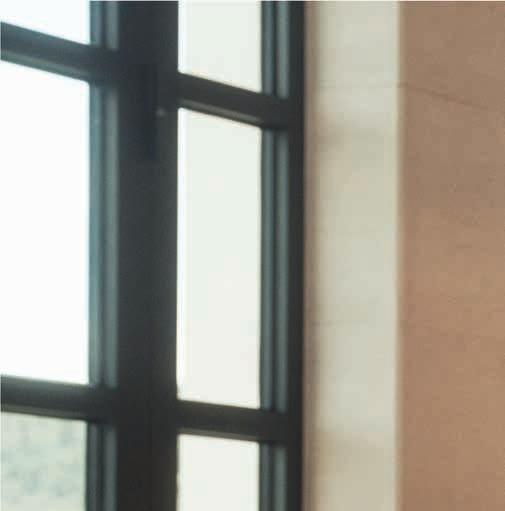
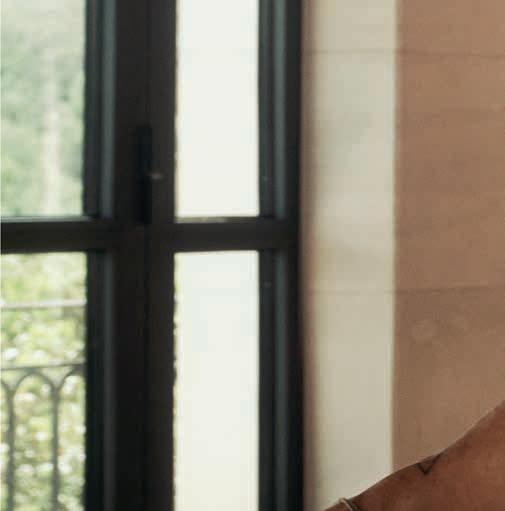
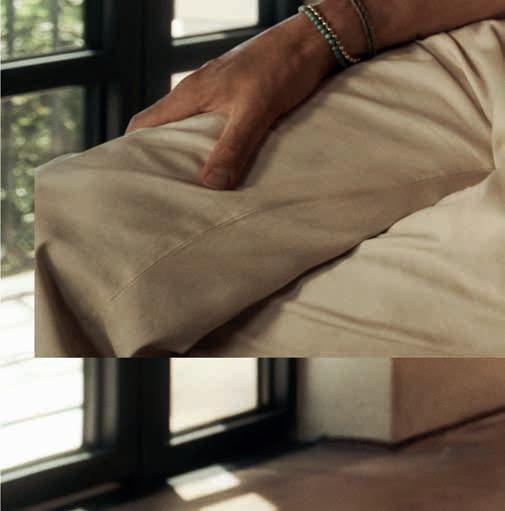



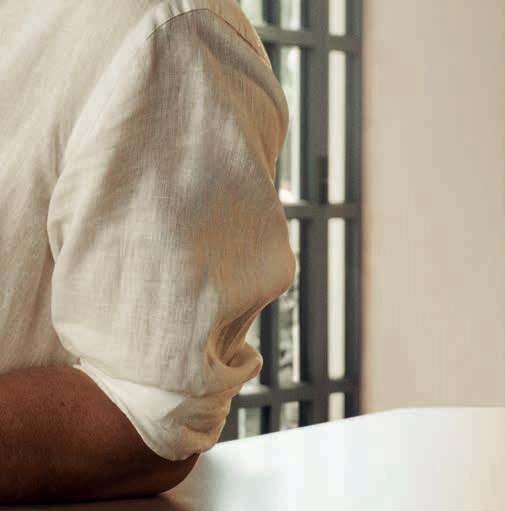
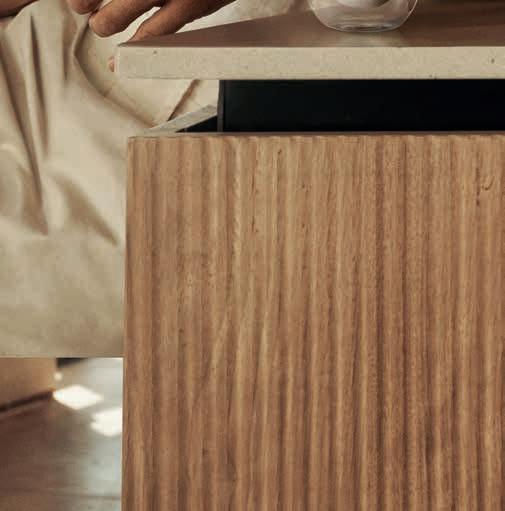

De’Longhi predstavlja novi automatski aparat za kavu. Dizajniran za istraživanje svježih zrna kave pomoću inovativnog izmjenjivog spremnika za zrna kave. Sveobuhvatna. Inovativna. Revolucionarna. Rivelia.



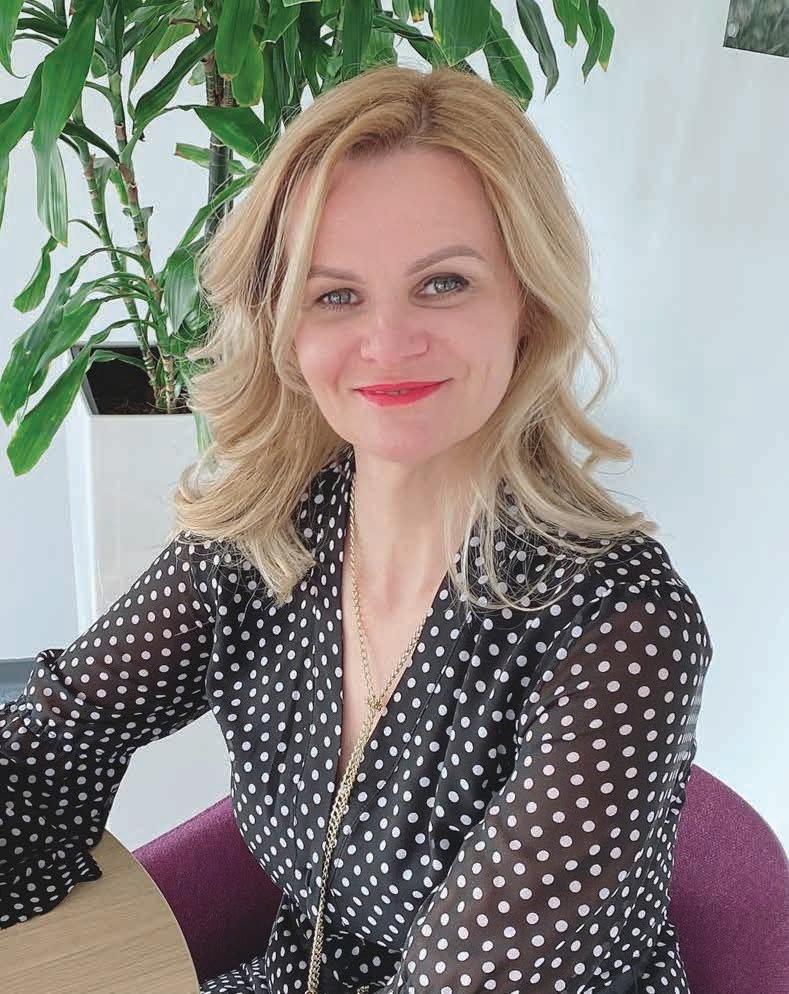
INTERVIEW/CORPORATE
harmaceutical industry market in Croatia today is moderately strong, with significant potential for growth. In such an environment, head of the pharmaceutical company Takeda is Viktorija Zadro Huml, responsible for the markets of Croatia, Slovenia, Bosnia & Herzegovina. For Diplomacy&Commerce magazine, Women in business, she reveals that despite her evident success and knowledge, she is still learning, that family support is very important to her, and that it is good to be satisfied on a private level as well, in order for success to be complete. Her team in the countries she covers are all women in leading positions.
PAccording to official data, about 5% of women are in management positions at large or medium companies in Croatia. You are one of them, as a General Manager for Croatia, Slovenia, Bosnia & Herzegovina at Takeda. How difficult is it to be where you are today? How was your business journey?
Journey to position of General Manager in Takeda has been both challenging and rewarding. Challenges have been in
VIKTORIJA ZADRO HUML
General Manager for Croatia, Slovenia, Bosnia & Herzegovina at Takeda
Women often excel in balancing multiple responsibilites and do so by using emotional intelligence when it comes to team management and conflict resolution
Career is even more valuable when you have a full personal life
my life to learn me on what type of person and leader I want to be. I started in clinical research, switched to sales and marketing and worked my way up from sales representative to where I am today. I am curious by nature, believe in hard work and am always up for an adventure and something new. Experience gained on the job gives me a better understanding of some of the challenges my colleagues face. I am still on a journey and am looking for opportunities to be a better leader and learn from participating in innovative projects, stepping outside of my comfort zone.
I am in a good place today because of the support I have from my family and colleagues at work. As a woman in a senior management role, I am passionate about fostering an inclusive environment where everyone can thrive. I believe it is essential to support and mentor the next generation of leaders and encouraging women to pursue and achieve their career ambitions.
What would be your advice to all women in business? Is there a secret to succeed?
The advice is the same for anyone in business. Never stop learning and work hard. Challenges and setbacks are part of the journey. Learn from them and enjoy the experience as much as you can. Career is even more valuable when you have a full personal life. Having a mentor and being a mentor to others is a great way to learn from other people’s experience.
How would you rate the pharmaceutical industry market in Croatia today, and what are the biggest problems you are facing? How would you rate Takeda’s position?
Croatia has a well-established healthcare system and a growing focus on innovative treatments and therapies. However, the industry and entire healthcare system faces several challenges. Budgetary constraints within the healthcare system can limit the availability and adoption of innovative therapies. Securing market access and ensuring favorable reimbursement conditions is often a complex and timeconsuming process.
Despite these challenges, Takeda maintains a robust position at the Croatian market the Croatian market. Our commitment to innovation, quality, and patient-centric approaches has helped us build strong relationships with healthcare providers and stakeholders. We continually strive to bring innovation and improve patient outcomes in Croatia.
What is the focus of your business if we know the fact that you invest a lot in research and innovative medicines?
Our investment in research and development aims to transform patient care and improve health outcomes worldwide. In fiscal year 23 our investment in R&D was $4.8 Bn. Our R&D efforts are focused on four therapeutic areas: Gastrointestinal and Inflammation, Neuroscience, Oncology, Rare Genetics and Hematology. We have more than 180 active partnership allowing us to tap into cutting- edge science and innovation at the source.
In this interview, we talk about women position in business today . Your company with you at the head sets a good example, because your closest colleagues are women. What would you highlight as the comparative advantages of women in business and what is your message to other employers?
Thank you. My managers wear many hats. Women often excel in balancing multiple responsibilites and do so by using emotional intelligence when it comes to team management and conflict resolution. My team has demonstrated remarkable level of resillience and is able to navigate and overcame challenges with determination and adaptability.
My message to other employers is to ensure fair hiring and equitable oportunities for promotions and career advancement. Foster a workplace where everyone feels valued and respected and look for employees whose values match your values as employer. Greater diversity and equity lead to more innovation and better working environment.





The Takeda leadership team is made up of women. For Diplomacy&Commerce magazine, Women in Business reveal their position on advancement in the company they work for and what their message is to women on the road to success.
1
2
To what extent does the company Takeda and the environment in which you work enable you to achieve your business goals?
What is your message to all women who want to succeed in business and create successful careers?

ANA RAZOV
Head of Finance and Supply Chain Croatia, Slovenia and Bosnia & Herzegovina
1
Takeda provides exceptional opportunities for my professional growth and development. The environment is dynamic and innovative. Takeda gives me space to contribute to business strategically and develop my leadership skills. With access to advance finance tools, global collaborations, cross county knowledge sharing, I’m able to drive decision, together with other leadership team members, thereby impacting our company’s growth. Additionally, Takeda promotes healthy work-life balance, which I consider essential for long term success, allowing me to perform at my best while maintaining personal well-being.
2My Message to all women, who want to build a successful career, is to believe in yourself and stay persistent. Don’t shy away from new challenges, take them as opportunities to learn and grow. Surround yourself with mentors that will allow you to learn from them and don’t hesitate to take on responsibility. Be authentic and courageous because the business world is ready for you.

Customer Excellence and NGCE Lead Croatia, Slovenia and Bosnia and Herzegovina and Learning and Development Lead MCO EE
1
Takeda fosters a supportive environment, empowering employees to achieve their goals through innovation, dsclusion drive progress, enhancing creativity and solutions.
2My message to aspiring women: Embrace opportunities, build strong networks, and remain resilient. A diverse and inclusive culture will be your ally, supporting your personal growth and collective success. Together, we can push boundaries and create a future where everyone has the opportunity to thrive.

DANA GREIF LENARČIČ
Medical Affairs Head Croatia, Slovenia and Bosnia and Herzegovina
1
As Head of Medical Affairs at Takeda, I’ve been able to realize my professional goals thanks to the company’s focus on innovation, collaboration, and continuous personal growth. The dynamic working environment encourages women to take on leadership roles, drive meaningful change, and make impactful contributions.
2
My message to all women aiming for success is to trust in your abilities, seek out environments that inspire growth, and confidently pursue your ambitions—because you have the power and potential to achieve greatness.

VESNA DESPIĆ TOMLJENOVIĆ
Patient, Value and Access Lead for Croatia, Slovenia, Bosnia and Herzegovina, New Product Planning Lead for Croatia, Slovenia, Bosnia and Herzegovina
1
I am privileged to work in a patient focused company doing the job I love, ensuring access to medicines. Takeda is a company where my personal values match Takeda values, a company that fosters inclusive environment where I feel empowered and inspired to be myself and to use my skills to best serve patients, people and society.
2
My message to young women in business: no matter how much you want to achieve certain goals in life, stay yourself and do not try to be someone else, or do what is not in line with your values. Authenticity can get you further than pretending to be someone you are not.

1
Country Commercial Head Croatia, Slovenia
At Takeda, the environment is structured to support the achievement of professional goals through a combination of continuous learning, strategic thinking, and collaborative teamwork. The first principle I adhere to in business is to seek to understand before being understood.
This approach fosters effective communication and mutual respect, which are essential for success. Achieving success in business necessitates a robust educational foundation, expert knowledge in one’s field, and strategic insight into industry trends. It also requires a clear understanding of the contributions one can make both in the short and long term. Continuous self-improvement, skill acquisition, and a dedication to understanding colleagues’ relationships and motivations are critical components of professional growth. Learning through collaboration and teamwork is equally vital. My success in business has been consistently supported by a dedicated team of skilled professionals who listen, understand, and respect each other while executing agreedupon tasks. I am profoundly grateful for their unwavering support. The culture of open communication, high ethical standards, and a shared commitment to serving patients makes me proud to be part of the Takeda Croatia team.
2To all women aspiring to build successful careers, my message is to remain dedicated, continuously seek personal and professional growth, and cultivate strong, respectful relationships within your professional environment.

Country Commercial Head Bosnia and Herzegovina
1
Takeda and the environment in which I work are extremely supportive of my professional development and allow me to excel in my work. The company offers numerous opportunities for gaining experience, education and platforms for exchanging knowledge and experience with colleagues around the world. Takeda strives to create an inclusive work environment that recognizes and values the contribution of everyone, which further motivates and encourages growth and development. Also, Takeda and its environment support us by giving us the freedom to make our own decisions and nurturing a culture of accountability that is essential for growth and development, while providing the structure and guidance for safe success.
2
My message to all women who want to realize themselves in business and build successful careers is to be brave and work hard on self-improvement every day. Take advantage of all opportunities to learn and improve, don’t be afraid to ask for support and advice when needed and always believe in your abilities. Surround yourself with people who support and inspire you and be ready for challenges because every challenge is an opportunity for growth and progress. Dedication and resilience will lead you to success.
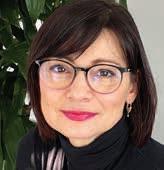
IVANA KARTELO ŠTAJDOHAR
HR Lead MCO Eastern Europe
1
Takeda provides a supportive and inclusive environment that prioritizes innovation, collaboration, and personal growth, enabling employees, including women, to achieve their business goals and build successful careers. The company emphasizes diversity, equity, and inclusion, offering numerous leadership development programs, mentorship opportunities, and flexible work arrangements.
2
Message to Women Aspiring for Success in Business:
• Believe in Yourself: Con dence is key. Trust in your abilities and strive to expand your skillset.
• Seek Mentorship: Find mentors who can provide guidance, support, and insights into your career path.
• Network: Build a strong professional network to learn from others and open new opportunities.
• Balance and Well-being: Ensure you take care of your physical and mental health to sustain long-term success.
• Be Resilient: Perseverance through challenges will set you apart and pave the way for accomplishments.
• Takeda fosters an environment where everyone can thrive, making it an ideal place for women to pursue and attain their professional ambitions.

JELENA VIDMAR KRUŽIĆ
Ethics & Compliance Officer, Regulatory Affairs Head Croatia, Slovenia, Bosnia and Herzegovina
1
In Regulatory and Ethic and Compliance role in big international company each day is full of planning, collaborating with different departments and authorities and making decisions. The role is dynamic, requiring constant adaptation to the evolving regulatory landscape and maintaining the highest standards of compliance and integrity. At Takeda, we all have a chance to actively contribute to new healthcare solutions and this is a daily motivator for giving my best in my role.
2Passion and purpose are in my opinion key components for feeling of esuccess.

SANJA KOVAČIĆ
Insights & Analytics Lead MCO Eastern Europe
1
Takeda encourages innovation and values diversity, which has allowed me to grow professionally. I´ve always had the opportunity to take initiative and work on projects that inspire me.
2
My message for all women is to boldly follow their dreams and not be afraid to be leaders of change in their industry.

ZELJKA VUKELIC MD
Head of Patient Value and Access and Head of External Affairs
MCO Eastern Europe
1
I am very satisfied with the career opportunities provided by Takeda and the supportive environment. Takeda’s culture values professional growth and actively encourages it through development programs, mentorship, and innovative projects.
2
To all women who aspire to build successful careers: pursue your dreams with determination. Connect with inspiring people, seek mentors for guidance, be proactive in new projects, and step out of your comfort zone. Your career is a journey, and every step forward is a victory. Takeda nurtures such journeys, embracing opportunities leads to success.

The key to improving the position of women in business is to follow meritocracy and abandon bias
leksandra Cvetković is a Member of the Management Board of Kent Bank. She started her business journey at one of the largest universities in the UK, and through Croatia, Hungary and Croatia again, today she is a decision maker in the banking sector, where she has proven herself to be an excellent manager with passion for transformations, change of status quo and business growth. She believes that it is necessary to continuously work on yourself, seek inspiration and ideas from various fields and walks of life and always expose yourself to new experiences, particularly in culture, art, music, theater, technology. For Diplomacy&Commerce, she explains what it’s like to be a successful woman in business and is there a shortcut to success.
AALEKSANDRA CVETKOVIĆ Member of the Management Board of Kent Bank
According to official data, about 5% of women are in management positions at large or medium companies in Croatia. You are one of them, as a member of the board of Kent Bank. How difficult is it to be where you are today? How was your business journey?
At the time when I started my professional career, the journey was somewhat atypical. It was in 1997 when I graduated Economics and Management from University of Leeds and I remember I was the only student not only from Croatia but from this region. I was lucky to start my first job in London in Arthur Andersen. That company ensured I get my work permit, which was really hard to get and I remember first training
we got was on business ethics and this sticks with me to this day. But I never really wanted to be an auditor, so after a few years when I felt I learnt enough about financial analysis I moved back to Zagreb and got a job at Zagrebačka banka. At that time for more than a decade of years 2000 Zaba was the most progressive company, invested a lot into development of young talents, we were setting the standards in banking, corporate governance, innovation. It really was a thriving organisation that truly lived values of diversity, respect and meritocracy. I really always had a feeling that all my progress was based on merit and this is so important for young people. Then in 2014 I was promoted to a Management Board level in UniCredit Hungary. And that was totally another level in my professional career, it was from governance point of view big game horizontally, vertically, however you want it. So I had experience of managing big divisions over 1.500 employees, managing balance sheet in excess of 1 bln euro. It was great and it was successful because I managed to set up a great team which is still there in place. But then after four years I decided to try something new, moved back to Zagreb and joined KentBank, which at that time I saw as a great platform where I could contribute to its total repositioning in a Croatian market. And we managed in three years to create best, now medium size bank in Croatia which is fully focused on small, mid and family business and free professions. We are a traditional bank with personal approach enhanced with sound, and soon, I dare say, some of the best digital solutions in the country.
What should be done to make women more visible in business and to improve statistics in favour of women? Things seem to be changing but slowly. How relevant is the general division of business into men and women in 2024 (considering that practice shows something different compared to theory)?
Statistics is a result of actions. And actions need to be consistent, transparent and relevant. From my experience key to improving this situation is in following meritocracy and abandoning bias. Every organisation that manages to do that, and that change comes always from the top, will be successful in the long run. If you look at the topic from the point of view of statistics, it is simply not natural to have the distribution skewed in the direction of men. Because gender wise in numbers there are slightly more women in general population, women are more educated in terms of higher education, so how come at some point this distribution is skewed in favour of men. Because of biases. And this is tough, as a lot of the time these biases
are unconscious, hidden in cultural norms and equally exist in both women and men decision making. Removing them from our decision making process needs conscious effort. Changing this requires not only time but also cultural changes that are deeply rooted into a society. Until this changes, even solutions like quotas, when done properly, I see as a viable shortcut. And we need to talk a lot about the topic, especially when it is uncomfortable.
What would be your advice to all women in business? Is there a secret to success?
There is no secret really. You simply need to love what you do, it needs to excite you. Not all the time of course as that is not possible. But special achievements, they need to make you do a happy dance with your team. And hard and consistent dedication and work is extremely important because that gives you credibility to ask if not given. And continuously work on yourself, seek inspiration and ideas from various fields and walks of life, aim to be excellent at what you do, but also always expose yourself to new experiences, particularly in my opinion culture, art, music, theatre, technology, because these things move boundaries remove status quo and they have potential to give perspectives for your business that you never dreamt of. It is not easy, but make an effort and give time and consideration to people who do not think like you, who challenge your thought as that will ensure personal growth and with that comes professional growth and fulfilment of your purpose in any
organisation regardless of the industry in which you operate.
How much Kent bank pays attention to the position of women and in general that all employees feel good working for you?
Employees feeling good and safe is of utmost importance for us as management. Not everyone is happy all that time of course, that would be impossible and not really natural. But if you as management seek to create an environment in which people feel respected, wanted, listened to, then this is the foundation for having happy and productive workplace. This approach is totally gender neutral and it gives good results also in terms of gender balance. Which in our bank resulted with 50:50 share on the Board level and 60:40 in favour of men on the Board minus one level.
Kent Bank is part of the Süzer Group from Turkey. What makes you different from others on the market for potential clients, investors…?
Suzer Group was established in 1952 by Mr Suzer, then a young entrepreneur who in his lifetime grew one of the top Groups in that country and became one of the first few Turkish companies whose foreign trade volume exceeded 1 billion dollars. The Group operates in international markets including EU and USA. Financial industry and KentBank is a crown jewel in the portfolio in Suzer Group. And the Group has some other very valuable jewels, such as for example Ritz Carlton hotel in Istanbul. So we are part of a very distinguished group
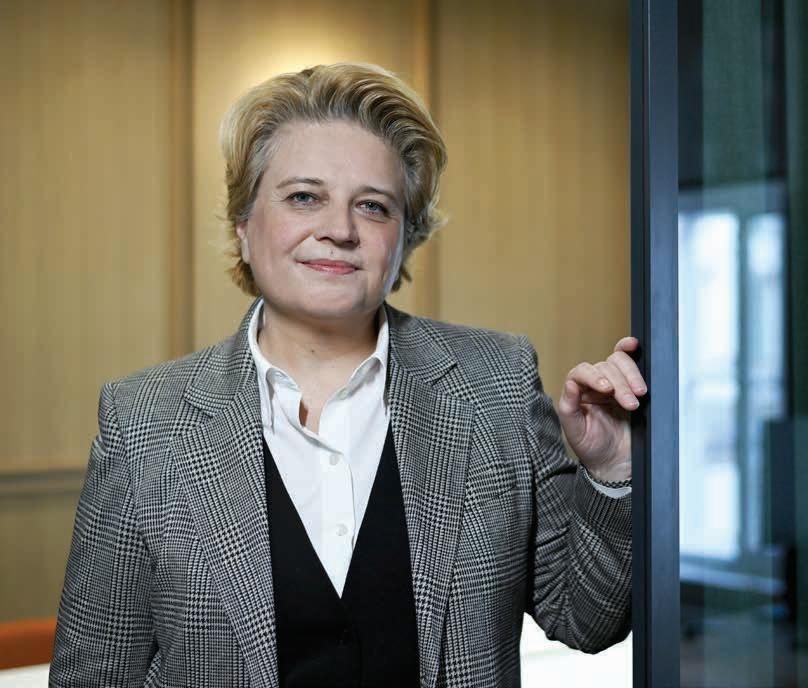

Kent Bank is the best, now medium size bank in Croatia which is fully focused on small, mid and family business and free professions.
which gives us strong back up, understanding of entrepreneurial mindset and banking competencies reenforced with experience and knowledge of various industries such as energy, real estate development, energy, tourism.
Kent bank drew attention with “Festival of Ideas” event. Will you continue with the festival and what messages do you want to send from such a beautiful event?
Because gender-wise in numbers there are slightly more women in the general population, women are more educated in terms of higher education.
Thank you for such nice words. Festival of Ideas is something we are actually very proud of. It is an event that we always do in the spring season in our KentClub. The Festival itself was born from our great desire to start a different story and to give something meaningful back to the society in which we as KentBank live and operate. Our role is manifested in the fact that we have the opportunity to offer the bank, our space and resources, as a platform for something that truly, independently and bias-free encourages excellence, opens minds and in the end creates new opportunities and perspectives for all participants.
The concept is very simple: gather prominent people from different industries, provide them with a pleasant and relaxed atmosphere, add to that an open-minded audience and let things unfold themselves. In addition to these important topics that both panellists and participants discuss, there is always a lot of laughter, exchange of success and failure stories, how ideas are born, what is inspiration, and also why is inclusion, tolerance and open mindedness so important for individual and society progress.
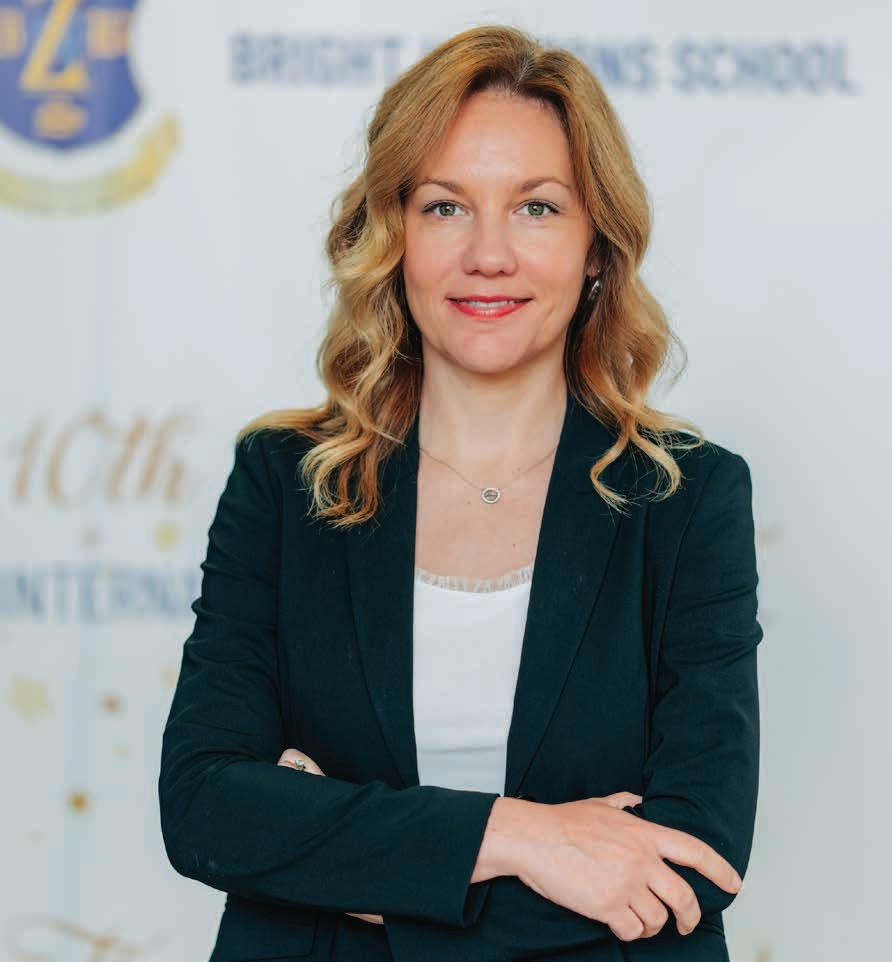
Society is one of the factors that can influence women to be or not be independent
Milena Prodanić Tišma, today is one of the few women, if not the only one in Croatia, who is the owner of the foreign primary and secondary school Bright Horizons International British School of Zagreb and Kindergarten Horizon. In addition, she is the only one from this region who is a Co-Opted Member of COBIS Bord. For Diplomacy&Commerce magazine, Women in Business, she reveals her path to success, the importance of education, but also the environment in
Co-Opted
Member, COBIS Board, Founder and Principal of Bright Horizons International British School of Zagreb and Kindergarten Horizons
This is one of the reasons why we don’t have many women or men who have ownership positions within education. Apart from the founders of preschool or high school institutions, where we had many ladies who managed to open kindergartens or high schools, we didn’t have so many private, primary schools in Croatia. I am happy to see that this is slowly changing and I think that the private education system is something that will be more present in the future of education in this country, especially in Zagreb, its capital city. I opened my first kindergarten almost 20 years ago. Now when I look back, I would say that it was a journey where I witnessed a lot of changes with respect to private education. We have always strived to be adaptable and to be able to respond to the needs of potential families and students, and also to continue to evaluate the curriculum and approach that we provide.
In your opinion, what is the future of education?
I believe that university education in the future will offer more programmes that are not introduced yet to be able to respond to the needs of the changing world of employment. I also believe that Primary and secondary education will be also transformed into more and more skilled-based learning whose core should be critical thinking. New generations have easy access to so much information online and they need to be equipped to distinguish right from wrong, true from false. We can witness that students are adapting faster to these changes in the school curriculum and this is one of the demands of the governments and education sectors to address these challenges.
How much is education necessary for success, awards, and recognition and how much does it direct or distract us from the goal that is ultimately seen as what you want?
which we grow up and how important it is in both personal and business development.
According to official data, about 5% of women are in management positions in large companies in Croatia. There are many of them in education, but not as school owners. How difficult is it to be where you are today? How was your business journey? In Croatia, there is generally no longrunning tradition of private education.
I believe that education is essential for your journey in the world of employment. I also think that it’s important to continuously modernize education to respond to the needs for future employment opportunities. It is very important to include skill-based learning in education which, together with knowledge that students gain, prepares them to be adaptable and candidates who are wellequipped for this ever-changing world.
How much does the environment, society, or something else influence women to be independent?
In many societies today we can see examples of women not having the freedom of speech and even some of them are not in the position to continue their education so, of course, society is one of the factors that can influence women to

be or not be independent. We can also see examples when the young women had the right support system, to use all the opportunities and they still missed the chance to follow up with their ideas, and also examples that a lot of women had many struggles and later managed to fulfill their dreams and become what they always wanted for themselves.
You are the Head and Owner of Bright Horizons International British School Zagreb and Kindergarten Horizons. What are the highlights of your approach towards education?
The highlights of education for our schools and kindergarten are that students have a chance to grow and learn in a multicultural environment where we celebrate diversity and have many opportunities to practice and gain skills that will help them to be future citizens of the world. The holistic approach to education that we are taking is putting the students and their needs at the center of the educational process where we make sure that they grow not only in an academic sense but also emotionally and socially, with a great support system for different talents students may have. We deeply understand their needs to express their creativity and be bold in different sports, and we always provide necessary support and guidance with all of their obligations.
At the invitation of the director of COBIS, the Council of British International Schools, You were appointed as a member of the executive committee, whose seat is in London. Explain to us what COBIS is? What can you tell us about your role?
COBIS (the Council of British International Schools) is the largest, premier, global association for British schools overseas, committed to school improvement, safeguarding, and supporting its members. COBIS schools educate over 200,000 students, employ more than
17,000 teachers, and can be found in more than 80 countries across Europe, Asia, Africa, the Middle East, and the Americas. COBIS was founded more than 30 years ago and is governed by an elected board consisting of head teachers and governors from member schools worldwide. COBIS’ mission is to support and empower all British international schools in their provision of highquality education. Its vision is to reach and connect all British international school communities in order to support them in developing students who have a positive impact on society. The guiding principles of COBIS are inclusivity, collaboration, and ambition.
I was honoured and delighted to be a co-opted member of the board, and also to join the COBIS Safeguarding & DEIJB Committee and the Membership, Growth, and Engagement Committee. This gives me the opportunity to work
Environment has an influence but I also believe that as individuals we can have different ideas of success and we can have different priorities which determine our lives.
and to collaborate with many experienced and skilled colleagues in the world of British education, and to share my ideas and experience within these important sectors of the COBIS Board. Being the only COBIS school in Croatia, this is a great opportunity for us to be connected to such a valuable source of information and support and to have an open channel for communication with our central office in London.
Through the British curriculum, teachers create many opportunities to allow students to think critically and creatively while also fostering analytical thinking through problem-solving. Since the beginning, the British curriculum has been one of the most widely-sought education programs in the world with its wellbalanced and student-centric system dedicated to helping children master any subject. At Bright Horizons, we also offer IPC (International Primary Curriculum) which aligns with the British national curriculum until Year 6, and Cambridge international education curriculum for secondary school. At Bright Horizons, we believe that every student must be valued as an individual, and our vision is to help our students develop selfconfidence, self-worth, and happiness within an atmosphere of encouragement and support. Secondary students are also introduced to Global prospective subject which encourage learners to think about and explore solutions to significant global issues. It develops learners’ abilities to consider significant global issues from different perspectives and motivates learners to work collaboratively and individually as they apply their knowledge in different contexts.

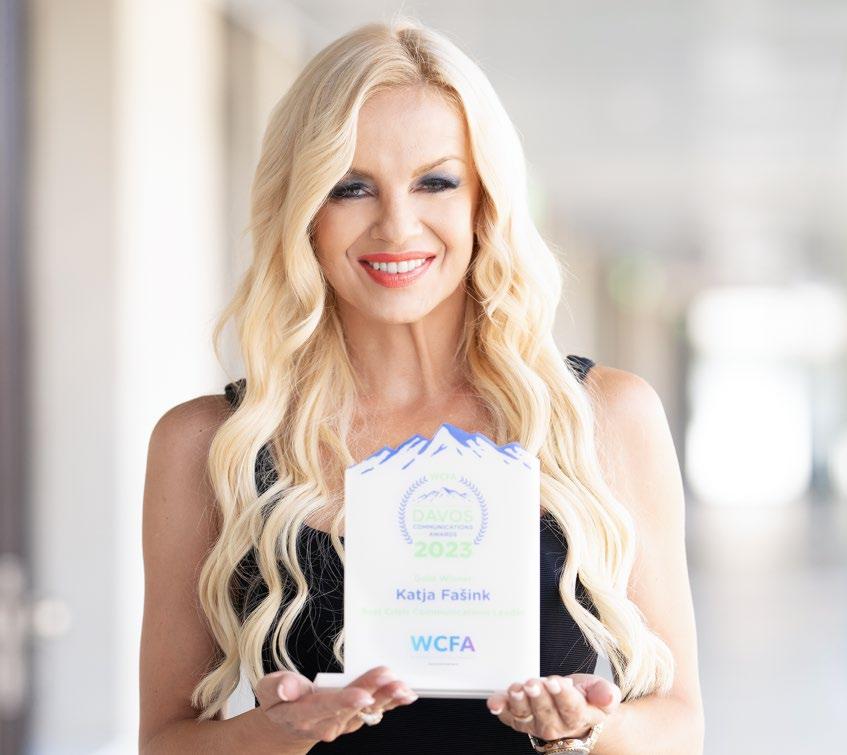
As a woman in business, I never chased or hungered for equality. Cause I know that we women have many advantages over men, for Diplomacy&Commerce, Women in business, says best Crisis Communications Leader 2023 by DAVOS Communication Awards WCFA • Crisis Communications member leader at FORBES Communications Council • CEO key7 • PRCA Southeast Europe Network Slovenia Chapter Chair. As a successful business woman, she talks about her experience on the road to success and whether it is important to be a woman or a man if you know how to do your job.
“A woman in business”, how “exotic” is this still in 2024 and how much has this become an everyday thing?
I belong to the group of human crisis comms operatives in a highly demanding and disrupted industry, highly skilled in managing complex infrastructure or ordinary corpo crises that are becoming our every day on an institutional and individual level. So, I consider myself exotic in the business. But not cause I’m a woman (laugh*).
What did Your business journey look like, the business journey of a successful woman? What challenges would you single out as the ones that had the most impact on You today?
I started as a TV host, which brought me popularity, so I opened my own business for a decade before I decided to devote myself entirely to the public relations industry. Before I started to work for a government-owned system operator in Slovenia, I managed PR for many excellent individuals and institutions regionally and institutionally. I was also lucky to be chosen to perform as a public information officer also for royalties in a complex family situation. I have consistently delivered unbeatable results, although I admit that since last and this year, I have not realized how high I rank among the best crisis communicators in the region and internationally.
You have won numerous awards for your work and knowledge. You are Best Crisis Communications Leader 2023 by DAVOS Communication Awards WCFA and Crisis Communications member leader at FORBES Communications Council. Is there a recipe for successful crisis communications and could you tell us some of the tools You use?
I lecture about crisis communication to a whole specter of industries, so the supportive tools are usually tied up in a straight line to their individual and institutional needs. I try to train the authorized group and the communication leaders to use and rely primarily only on one tool – brains. Brains are the only tool you can trust in a crisis time. My job is to give and teach them solutions for their industry in their cases, not in a general manner; all cases that we work on are actual predictions from their company/industry. We write newer, updated processes to be better, reliable, and completely stable. That’s why I prepared for some lectures for more than three months; I needed a longer period to be fully qualified to guide them at something so essential and cooperate with them to set protocols that would be unbeatable and bulletproof.
Today you have your own company “Key7”. You work with governments, decision makers at various levels. Is being a woman in such an environment an advantage or a disadvantage, what is your impression? What would you separate from the jobs you currently do?
At this stage, it doesn‘t matter what gender I represent cause the service that Key7 offers is very urgent to many of them, and they don‘t have many choices or a choice at all. But if the service weren‘t urgent, it would be easier if I were a man. As a woman in business, I never chased or hungered for equality. Cause I know that we women have many advantages over men. On www.key7.si, we tried to describe our basics; however, we solve corporate/
complex communicational, critical infrastructure and it/cyber security problems and crises. But to separate what I love the most at Key7 team? I think it‘s about the closure that we provide and is built from informations and answers to all your questions. The key to smart life and business is to get all the answers. Answers are your individual and institutional rights and responsibilities. And we only stop once we find all the answers and know all the details of the whole story. We bring you »the whole truth« in a posttruth world.
There are far less women at the head of companies compared to their male colleagues, around 5%. What do You think is the reason for that and how can this number change in favor of women?
This 5 % of brilliant and bold women got their positions cause there was no man suitable-skilled or educated or trained enough to get it. So, these 5% of women are titans for both genders in the busi-
ness. If one man were “good enough,” the position would be his. This funny number won’t change drastically in the future cause highly skilled women operatives love to work backstage. They don’t want the attention, don’t have the time or drive to perform, and a desire for public attention (panels, events, interviews) or the character that likes attention (they’re usually intellectual introverts who are immensely reliable and advanced operatives-engineers). So they don’t want positions, and to be sincere, sometimes they make the same or even more money than general managers, so why would they want their positions? Those with real, niche knowledge and skills who are reliable and reputational professionals want to avoid the bigboss positions. Usually, the ones who lack knowledge, abilities, power, and results have an intensive self-love and selfpromotion drive and consequently want these important chairs; usually, they also get them or are given to them by the same kind of successful businessman.


Highly skilled women operatives love to work backstage. We don’t want or need the attention, don’t have the time or drive to perform, and a desire for public attention (panels, events, interviews) nor the character that likes attention."
Does female solidarity exist in the business world or should everything be observed professionally and individually?
Women’s solidarity exists in many other worlds, but unfortunately, not in business or politics. If it does and when it does, it is sporadic and interlaced with mutual respect and admiration for each other’s knowledge, skills, abilities, achievements, or similar past experiences and “pains.”
What is Your message to women in general when we talk about a business and do You have a message for male colleagues? Should this distinction still be made at all? For the finish, I have to be slightly sarcastic again, so my message for colleagues „of all genders“ is: What you give is what you get. Remember that. And book Key7 team till you have a choice, eventhough I love it the most, when you have no choice.

INTERVIEW/CORPORATE
na Ljevar, Managing Director of Humed Pharma doo, is living her business dream. After completing three degrees, she believes that education is important for success, but it’s not crucial. She says for Diplomacy & Commerce Women in Business that women should do what they are passionate about, despite the fact that we still live in a male-dominated business world.
AANA LJEVAR Managing Director - Humed Pharma d.o.o.
We need to create social conditions where the women have the opportunity to compete for the highest managerial positions.
not working exclusively with people who were ill. Instead, I got to witness the satisfaction of healthy individuals improving their appearance, slowing down aging, and ultimately feeling good about themselves.
I founded Humed Pharma 11 years ago, starting as the exclusive representative for mesotherapy cocktails from the Spanish manufacturer Skin Tech. I then expanded to many other brands, including specialized foot care cosmetics Feetcalm, American medical cosmetics Skinbetter Science, and the most advanced medical devices such as Eve and Daphne, devices for maintaining intimate health, and the portable ultrasound device Clarius.
How much is education necessary for success, awards, recognition and how much does it direct or distract us from the goal that is ultimately seen as what you want? How much does the environment, society or something else influence women to be independent?
How does a successful woman like You measure success and how would You assess the role and position of women in business today in Croatia? What needs to be changed to increase the figure of 5% of women in management positions?
Success is not only material; success is also being satisfied with what you do. For me, it’s important that my work fulfills me and that I can secure certain things in life, as well as help others. In business, it is still often considered that women are not on the same level as men. It is assumed that they will have to take care of children and the household, so they are not even considered for leadership positions. In some industries, there are no women at all, and sometimes it happens that “men make deals easier”.
How did Your business journey look like? What challenges would You single out as the ones that had the most impact on you today?
I started my career in the world of medical aesthetics immediately after finishing university, working at one of our leading pharmaceutical wholesalers. I liked that I was in the medical field, but
It’s incredibly difficult for women in business, regardless of whether you’re young or old, because we still live in a maledominated world where it’s expected that managers are men, and that smart decisions are made exclusively by men.
Our focus is especially on dermocosmetic lines from Cantabria Labs, as they are grounded in scientific and medical research, as well as Aliaxin dermal fillers and the Profhilo bioremodulator from the renowned Italian manufacturer IBSA Derma. One of our latest acquisitions is the exclusive representation of the world’s leading exosome manufacturer, South Korean ExoCoBio. I also have to mention the holistic cosmetic brand Alqvimia, which might be outside the core activities of our company, but we must acknowledge the fact that beauty stems from comprehensive well-being. Recently, we opened the Alqvima Store & Spa in the heart of Zagreb. This unique place offers 100% natural cosmetics, holistic well-being, and spa rituals.
The biggest challenge along the way was how to reach customers. Even though I was already in the industry and had good relationships with many clients, it wasn’t easy to convince them of the quality of new products on the market. It takes time for end-users to be satisfied so that wholesale buyers can gain confidence as well. It’s incredibly difficult for women in business, regardless of whether you’re young or old, because we still live in a male-dominated world where it’s expected that managers are men, and that smart decisions are made exclusively by men. For a young woman, it’s even harder because no one takes you seriously. However, everything I was told I couldn’t do because of my age or because I was a woman only motivated me to prove the opposite.
Education is important because it enables mastery of the subject matter, but I believe that today a person doesn’t necessarily need to be formally educated in the field they work in. Many people often change not only jobs but also the industries they operate in, and they are successful in them. Education helps, but it’s not essential. There are successful entrepreneurs with only a high school education, but they were willing to take risks and tackle the challenges of the business. There’s also increasing talk and writing about the importance of women being independent. Thirty years ago, women were much more dependent on their husbands, but today there’s a growing effort to empower women to be self-sufficient. As a result, they’ve started to believe in themselves more, and it’s proven that they are more resilient and capable of achieving more than men.
You are the owner and director of Humed Pharma doo. What would You highlight from Your company’s portfolio to our readers and what sets you apart from others?
The brands we represent are primarily characterized by being scientifically backed, safe, and effective. I’m not interested in overnight profits just because certain products are currently trendy or being promoted by some well-known public figures, which other representatives often take advantage of to profit from short-lived trends.
What is Your message to women in general when we talk about a business and do You have a message for male colleagues? Should this distinction still be made at all? Women should try doing everything that interests them, take on challenges, believe in themselves, and they will surely succeed. Men need to show more respect towards women, especially in our Balkan region, and be more supportive of their work and progress.
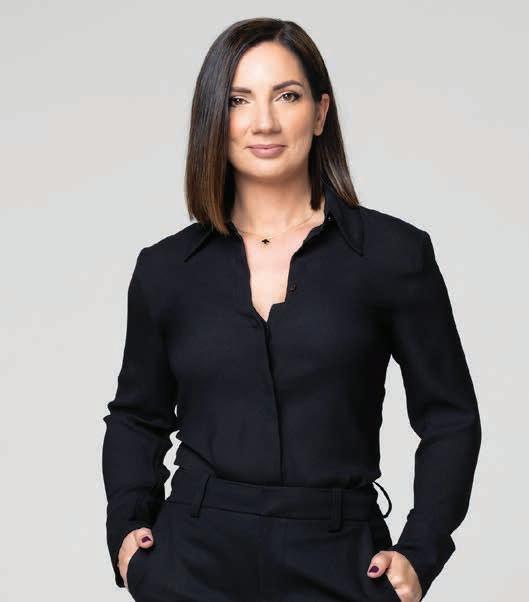
hen most people hear or say Mastercard, they think of success, business, and money. Gea Kariž, country manager at Mastercard Croatia, the woman at the top of the company, which is synonym for business and money, speaks for our magazine and “Women in Business” issue about her experiences, success in business, but also about the new projects she is preparing with her team in that company. Among other things, he says: advocate for yourself and your ideas, as this is key to building a successful career.
WGEA KARIŽ Country Manager at Mastercard Croatia
Success is about creating a sustainable impact that goes beyond personal achievement
building, and promoting policies that balance professional and personal responsibilities. By advocating for diverse leadership, companies can benefit from varied perspectives, which are critical for innovation and long-term success. Additionally, increasing the visibility of women role models in leadership can inspire and motivate future generations to aim higher.
You gained many years of experience and knowledge in media, marketing agencies, and corporate environments up to the finance sector. How would you describe your business journey, and what challenges would you single out as the ones that had the most impact on you today?
Starting in media and marketing allowed me to build a foundation in understanding consumer behavior and the importance of strategic messaging. Transitioning into the corporate and finance sectors gave me a broader perspective on business operations and the value of data-driven decisions. One of the biggest challenges I’ve faced is navigating the rapid pace of technological change, which requires agility and a forward-thinking approach. Another pivotal challenge has been leading crossfunctional teams where collaboration and adaptability are essential. These experiences have shaped my leadership style and underscored the importance of resilience and strategic foresight in building a successful career.
where everyone, regardless of gender, can reach their full potential.
When we say Mastercard, most people think of success, business, and money. You, as the head of the company in Croatia, continue to strengthen business and stimulate growth. How do you evaluate 2024 in terms of the company’s business, and what do you expect in 2025?
In 2024, Mastercard Croatia has made significant strides in advancing beyond card payments, emphasizing innovation and digital transformation to enhance the broader business ecosystem. Our primary focus has been on developing and providing advanced digital tools and solutions that empower businesses to operate more effectively and securely in an increasingly interconnected world. Looking forward to 2025, we plan to continue this trajectory by heavily investing in cybersecurity, data analytics, and sustainable technologies, aligning with our commitment to innovation. By driving these forward-thinking initiatives, we aim to create lasting value for our partners and contribute to a more resilient economy, positioning Mastercard as a trusted, integral player in Croatia’s digital and financial landscape.
What can you tell us about your upcoming projects? In which areas does Mastercard Croatia invest the most (culture, business...)?
How does a successful woman like you measure success, and how would you assess the role and position of women in business today in Croatia? What needs to be changed to increase the figure of around 16% of women in management positions?
Thank you for the compliment. For me, success is about creating a sustainable impact that goes beyond personal achievement; it’s about driving positive change for the business and the broader community. In Croatia, the underrepresentation of women in management roles signals a need for systemic change. To elevate this figure, it’s essential to foster an environment that not only encourages but also actively supports women to pursue leadership roles. This could include programs aimed at mentorship, investment in skill-
Embrace your strengths and leverage them to make your voice heard
What is your message to women in general when we talk about business, and do you have a message for male colleagues? Should this distinction still be made at all?
To women in business, I’d say: embrace your strengths and leverage them to make your voice heard. Advocate for yourself and your ideas, as this is key to building a successful career. To male colleagues, I’d emphasize the value of inclusivity. Encouraging diverse perspectives strengthens teams, fuels innovation, and leads to better decisionmaking. Ideally, we wouldn’t need to make these distinctions, but the reality is that disparities still exist. Acknowledging these differences allows us to continue pushing for a more inclusive and equitable business environment,
At Mastercard Croatia, we are continuously investing in projects that support economic, cultural, and technological advancement. One of our key initiatives, Uplift, is designed to assist small businesses in the tourism and hospitality sectors through tailored education and mentorship, recognizing the critical role this sector plays in Croatia’s economy. Additionally, we are expanding our focus on cybersecurity and digital finance, which have become essential for businesses as they navigate digital transformation. By investing in these areas, we are supporting businesses, governance, and all key stakeholders, laying the groundwork for a more innovative and sustainable future in Croatia. Our commitment goes beyond immediate business objectives to foster a culture of long-term growth and positive community impact.
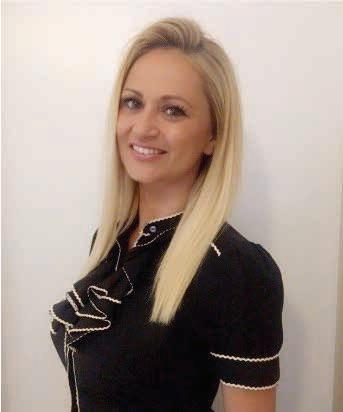
JAGODA POROPAT DARRER
The author of the book
In a super election year both in Croatia and in the world, and in anticipation of the Croatian presidential elections, university professor Jagoda Poropat Darrer published the book ““So help me God” - Presidential Rhetoric in Croatia“. For Diplomacy&Commerce magazine, she talks about all the secrets of the successful communication, visual rhetoric, gesticulation of the candidates. We also talked with her about the rhetoric of world leaders and the difference compared to domestic politicians.
““So help me God”- Presidential Rhetoric in Croatia”, is your first book. What inspired you to choose this topic?
The book was written partly as a result of many years of engagement with the rhetoric of Croatian and global political leaders, and partly from research for my doctoral, and is published by Hrvatska sveučilišna naklada. My professional and academic interests lie in exploring how persuasive mechanisms work and how politicians gain, maintain, and lose the trust of voters. Many secrets are hidden not only in the direct verbal mes-
The book was written partly as a result of many years of engagement with the rhetoric of Croatian and global political leaders, and partly from research for my doctoral thesis
sage but also in the voice, posture, behavior, and non-verbal cues. It is widely known that 38% of the overall impression we leave on our audience is created through the voice, or more precisely, prosodic features. In the book, among other things, I specifically address the tone and intonation of individual presidents and test whether there is something specific to which voters respond more favorably. It turns out that a lower tone and more natural intonation affect whether a president will be more liked by their voters. In addition to prosody, the book covers values, language and style, populist elements, and, of course, the visual rhetoric of individual presidents.
brovnik, which was distinguished by its diplomacy, and then add to that the rhetoric of folk toasts, oaths (such as charms, curses, pledges, recommendations), praises, counting rhymes, and taunts, we can say that rhetoric in Croatia has always been very specific and vivid. Folk rhetoric is still present in the speeches of presidents. It often appears in an archaic form, through sayings, mottos, and proverbs that are abundant in their political speeches. Unfortunately, presidential rhetoric is filled with figures of speech, but they tend to be worn-out ones, which no longer feel like embellishments. Here we find many metaphors about path (track), construction, turning over
THE GOAL OF EVERY POLITICAL SPEECH, INCLUDING THAT OF A PRESIDENT, IS TO WIN AND RETAIN VOTERS.
How would you place the presidential rhetoric today in the Croatian rhetorical heritage and how would you evaluate it in general?
Croatian rhetorical heritage is very rich. When we look back at Croatian history, particularly during the time of the Republic of Du-
a new page, and scenes— all overused figures. Therefore, it would be appropriate at this point to suggest to all public speakers to improve their use of metaphors, for example, as President Milanović does, who is by far the best in this respect among all the presidents analyzed in the book. Intelligent,
well-read, and rhetorically agile, he always manages to capture attention with his speech, and not just when he makes provocative remarks.
When we talk about the president’s rhetoric, we cannot exclude the fact that they are politicians and that their goal is to profit (get the most votes). How do the values in their speeches fit into that, and what about populism, which is inevitable, on the other hand? Each person does this in their own unique way. One remarkable aspect of presidential elections in Croatia is that they are still direct elections. Every vote has equal value and can tip the balance in an election. All presidents emphasize universal values, but these values differ from president to president—partly due to the historical-political context in which they served, partly based on their political alignment (whether left or right), and also due to their individual personality and character. In the book, I also analyze how presidents build their credibility based on the values they emphasize. For example, I reveal how Tuđman placed the most emphasis on the value of freedom, Mesić on cooperation, Josipović on justice, Grabar-Kitarović on
unity among citizens, while Zoran Milanović’s rhetoric is rooted in the values of equality in diversity, truth, independence, cooperation, the cultivation of national culture, patriotism, and solidarity. As the supreme commander of the armed forces, he particularly focuses on and addresses national security issues in his speeches.
When discussing populism, it is essential not to confuse different concepts. Populism exists as a meta-ideology and, as such, encompasses three elements: anti-elitism, an appeal to the people, and the identification of a dangerous “other.” It should not be confused with populist communication style, which is a tactic used to gain voter support. One of the conclusions in the book is that Croatian presidents are not populists by definition, but some employ a populist style to varying degrees. For example, by emphasizing that they are just ordinary people, showing their love for football, sharing glimpses of their family life with voters, promising popular measures they cannot fulfill, or using dialects to connect with citizens. It’s worth noting that in the analyzed speeches of Croatian presidents, I did not detect right-wing populism, which is currently prominent in Europe.
How important is visual rhetoric in the addresses of presidents and politicians in general, and what does it actually mean?
Visual elements contribute to the persuasive power of discourse, with the aim of achieving a positive rhetorical effect. The elements of visual rhetoric are employed both deliberately and unintentionally, and persuasion in visual rhetoric can occur on two levels: consciously and subconsciously, both for the sender and the recipient of the visual message. Persuasive elements include proxemics, kinesics, and symbolic repertoire, while the strategy of persuasion relates to the use of ethos and pathos. This means that all visual elements are directed towards building the president’s credibility (through the strategy of persuasion via ethos) and representing the independence of the Republic of Croatia to a broad audience both domestically and internationally. Additionally, unintentional non-verbal cues from presidents complement the core verbal messages of their speeches, enhancing the persuasive strength of the discourse and reinforcing national identity.

IT IS WIDELY KNOWN THAT 38% OF THE OVERALL IMPRESSION WE LEAVE ON OUR AUDIENCE IS CREATED THROUGH THE VOICE, OR MORE PRECISELY, PROSODIC FEATURES.
Which of the Croatian presidents so far (Franjo Tuđman, Stjepan Mesić, Ivo Josipović, Kolinda Grabar Kitarović, Zoran Milanović) has the most impressive rhetoric and who would you single out as someone who most respects the “rules” when communicating?
When it comes to following rhetorical rules, I must say that President Josipović adhered to them the most, although this earned him the title of the most boring and least engaging speaker. The goal, therefore, is not to strictly follow general rules, but to be innovative and authentic in public appearances. According to respondents, the best speaker was Franjo Tuđman, particularly in the categories of expressiveness, emotionality, sincerity, persuasiveness, and audience engagement. Zoran Milanović received the highest rating for naturalness among all presidents. Stjepan Mesić was most appreciated for the pleasantness of his voice and clarity of speech, while Kolinda Grabar-Kitarović was rated highest in emotionality.
Although Franjo Tuđman was rated the highest in several categories, he also received the most negative comments in the openended responses from some participants. Tuđman was praised for his energy, passion, and fervor, but criticized for theatricality, pathos, and an unpleasant voice and delivery. Stjepan Mesić was most liked
has reached the point where Milanović’s coinages have earned the term “zoranisms.” We could say that Milanović is a master of this kind of rhetoric, but also of improvisation, as he always incorporates his own authentic and spontaneously crafted, sometimes provocative, phrases into his prepared speeches. Milanović’s style, marked by scandalizing rhetoric, blends authenticity with a provocative edge, often generating both public engagement and controversy. His tendency to break conventional rules of political discourse makes him stand out but also fuels significant debate about the appropriateness and effectiveness of his rhetoric.
Your book deals with the rhetoric of Croatian presidents, but which of the world’s officials (presidents) is the most interesting to you in terms of communication and ways of addressing both official and less formal (Biden, Trump, Macron, Putin...)?
for his pleasant voice, conciliatory tone, and calmness, though he was faulted for self-praise, lack of emotion, and monotony. Ivo Josipović was praised for his diction, pacing, and pronunciation, but criticized for being unconvincing, having a plaintive and non-leaderly voice, and lacking charisma. Kolinda Grabar-Kitarović was attributed with ambition, power, passion, and emotionality, while her affectation, pathos, and lack of authenticity were criticized. Zoran Milanović was praised as a confident speaker but was criticized for using ad hominem arguments against opponents and for insulting them.
A special segment of the book is the rhetoric of the current president, Zoran Milanović. Is it because of his special way of speaking, expression, unconventionality or something else? How would you describe his rhetoric?
It could indeed be concluded that a separate chapter naturally imposed itself due to the peculiarities of the current president, but this is actually just a technical maneuver since the doctoral research did not originally include Milanović.
The most interesting part of Zoran Milanović’s rhetorical profile is his speaking style. His abundant and original use of figurative language is the hallmark of his rhetoric. The popularity of such original rhetorical figures
The presidents you mention cannot be measured by the same standards as Croatian presidents because they come from a presidential system of governance, where the president holds actual executive power, which is not the case in Croatia. In any case, every word and action of these foreign leaders has a much greater impact. They are each interesting in their own way. It’s fascinating to observe how today’s most prominent politicians use rhetoric—this oldest political tool—to gain the trust of voters, or how they fail to use it for their own purposes. The most vivid example is, of course, Donald Trump, with his scandalous rhetoric and angry populism. Then there’s “Sleepy Joe,” as Biden is often called due to his slow reactions and odd behavior in his addresses to the nation. Putin presents a different case, built on the cult of personality and the infallibility of a supreme leader. Macron, with his political power somewhat shaken, seems to be losing the charisma he had long cultivated.
It’s also intriguing to reflect on Trump’s populist style. In his rhetoric, he emphasizes elements typical of populist discourse. He claims to be “from the people,” distancing himself from political elites, which he identifies as the corrupt Democrats. He also insists that he is the only one capable of saving the U.S. and establishing peace worldwide. This is a classic populist approach, positioning himself as the savior of the world.
SEPTEMBER 21st
WEEKEND MEDIA FESTIVAL, ROVINJ
Diplomacy&Commerce Panel Disscusion
The panel “HOW THEY SEE US Foreign ambassadors about the similarities and differences between countries and people in the region” was organized in Rovinj last weekend as part of the “Weekend Media Festival”. They spend an average of three to four years in our countries. Some of them have the desire to get to know in detail the customs, mentality, food and culture of the countries where they are serving, while others view their service exclusively as a bureaucratic job in which the most important thing is to represent the interests of their country. How do foreign ambassadors see us? How much do they know about us, what prejudices do they come with and what do they
SEPTEMBER 21st
WEEKEND MEDIA FESTIVAL, ROVINJ

take in their suitcases when they leave the service? In their eyes, what are Croats, Serbs, Slovenians, Bosnians and other nations in these areas like? These questions were answered by the participants in the panel.The moderator of the panel was Robert Čoban, president of Color Press Group, and the par-
Weekend Ski Party Brought Together Numerous Celebrities
The new, 3rd issue of the “Ski YU” magazine is available from October 1, 2024 at gas stations, airports and all well-stocked kiosks in Serbia, Croatia, Bosnia and Herzegovina, Slovenia, North Macedonia and Montenegro. Readers will be able to download the magazine online on the novarinnica.net platform. A large number of festival participants, skiing en-

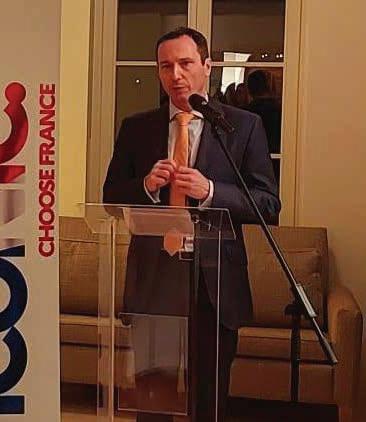
thusiasts and celebrities gathered in the garden of the Grand Park Hotel. Guests were welcomed by Dejan Ljevnaić, director of OC Jahorina, Robert Čoban, president of Color Press Group and Žikica Milošević, editor-in-chief of “Ski YU” magazine. Among the guests were: Jelena Milić, ambassador of Serbia in Croatia, Jelena Trivan, director of the company M:tel; Dra-
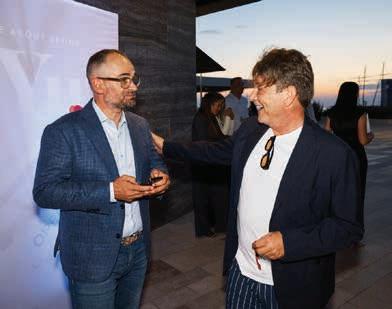
OCTOBER 1th
RESIDENCE OF THE FRENCH
AMBASSADOR IN ZAGREB
Reception after the success of the Paris Olympics and Paralympics
Make it iconic ! Choose France”: that was the message conveyed to Croatian representatives of the business, culture and media sectors by French Ambassador to Croatia H. E. Fabien Fieschi to at a cocktail reception on Tuesday, October 1st.
After the success of the Paris Olympics and Paralympics, which showcased the French spirit of audacity and innovation. France is renewing its worldwide communications campaign under the motto “Make it iconic”, inviting decision-makers, innovators, creators and investors around the world to
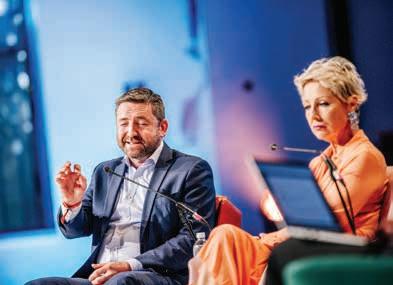
ticipants – Kalle Kankaanpää, the Ambassador of Finland to the Republic of Croatia, the Holy See (Vatican) and Bosnia and Herzegovina, Jelena Milić, the Ambassador of the Republic of Serbia to the Republic of Croatia and Adrian Farrell, the Ambassador of Ireland in Slovenia and Bosnia and Herzegovina.
gan Bjelogrlić, actor and producer, Tomo Ricov, organizer of the Weekend Media Festival, Nataša Vulin, director of the Advertising Solutions agency and many others from the world of media, marketing and communications. Those present enjoyed wines from the Meneghetti Winery and Istrian delicacies prepared by the chefs of the Grand Park Hotel.


choose France to develop their projects, drawing on the skills and know-how of French people. Through this motto, this campaign wishes to highlight what makes up the “French spirit”: a mix of audacity, ambition, creativity, excellence, passion, which makes a difference and makes partnerships with France truly “iconic”.

OCTOBER 3rd
HOTEL ESPLANADE, ZAGREB
Day of German Unity
On the occasion of the Day of German Unity Ambassador Dr Christian Hellbach hosted a reception with guests from politics, business, culture, society and diplomacy. “After the fall of the Berlin Wall, which symbolised democratic change and the overthrow of communist regimes throughout East-
ern Europe, the reunification of Germany meant freedom and democracy for the 17 million inhabitants of the former GDR. It was the end of the Cold War and the beginning of a new phase of European integration. For Germany, this meant not only territorial unity but also the regaining of full sovereignty” stressed Ambassa-
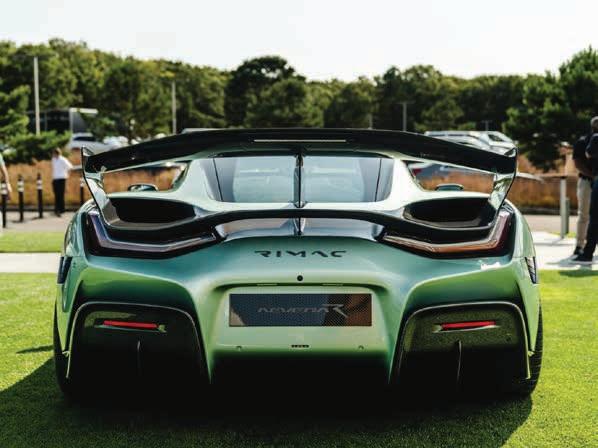
OCTOBER 18st
KERESTINAC, CROATIA
Mate Rimac presented Nevera R and the Campus in Kerestinac
The total value of the production lines will ultimately be more expensive than the construction of the campus itself. It is a ratio of 250 to 120 million euros. Just one line that will produce battery systems for BMW, with which Rimac announced a partnership in April this year, will be worth 100 million euros. In the still empty, all-white hall, there will be other lines for BMW, and two more projects have been agreed with German manufacturers,
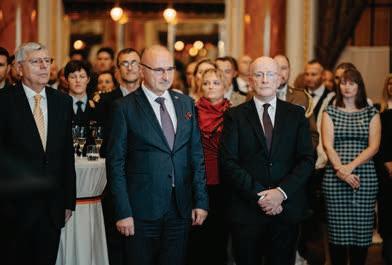

dor Hellbach. Minister of Foreign and European Affairs Gordan Grlić Radman, representing the Croatian government, addressed the event and wished everyone a Happy German Unity Day, recalling the closeness of the two countries and the importance of excellent mutual relations since Croatia’s independence to the present day.

whose names Rimac cannot arbitrarily reveal.. n addition to the business and the campus, the Nevera R was presented to the local public, which was shown for the first time in August at the automotive event The Quail: A Motorsports gathering in California. The Nevera R is designed as an aggressive alter ego of the Nevera and represents the transition from a hyper Grand Tourer car to a hyper sports car. The campus will not be sufficient for all production, so
the plant in Jankomir will remain active. In addition, the project in Kerestinac is not finished. There is still a need to build a building that will house offices, restaurants and a kindergarten for more than 2,000 employees who should work there (currently there are 400 of them). The construction of a test facility in Stupnik and another one in Kalinovac was also announced. Rimac Group should ultimately have one million euros of square footage.
From the very outset Volvo Cars has been a brand for people who care about the world we live in and the people around us.
Volvo has made it‘s mission to make life easier, better and safer for everyone. For a better future. Volvo wants to provide you with the freedom to move in a personal, sustainable and safe way.
Founded in the distant year 1927, Volvo Cars has built a strong reputation over the years as a world leader in quality, design and safety. Especially in this last area, the Swedish brand has held a downright legendary status for many decades now – due to its many breakthrough achievements, which raised the level and changed our perception of automotive safety.
Because of so many positive features, proven reliability and a luxurious yet reserved Scandinavian style, Volvo soon became a popular choice among diplomats, too. As a matter of fact, Volvo Cars has been serving the diplomat community already since 1956, today offering one of the most comprehensive diplomat sales programs on the market.
The fact is that the advantage of Volvos is not only in what they offer in general, but primarily in how much they manage to adapt to the wishes and needs of individuals. Each Volvo – as the brand itself says – is designed around people.
Let‘s illustrate this: a Volvo Diplomat customer, for example, is able to order a new Volvo, tailored to her or his unique requirements, with a premium level of service and exclusivity guaranteed. Choice can be made between a wide selection of cars and various possibilities, and there is also the option of designing a desired car in the configurator on Volvo website and using Volvo consultants to help make the right decision.
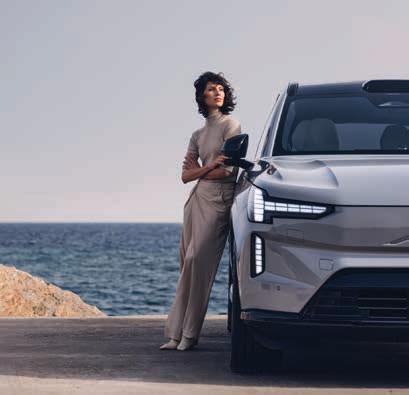
And while every single car from special Volvo Diplomatic Sales program is tailored to unique wishes of diplomats, there are some Volvo models that are becoming more and more desirable among the community, with growing popularity. These are the XC models, a line of exceptional SUVs that represent an alternative to more classical diplomatic cars and offer plenty advantages.
For example, the Volvo XC40 excels in driving experience and cutting-edge technology and brings lightness to journeys, while its somewhat bigger brother Volvo XC60 impresses with perfect technology, highest comfort and equipment adjusted to the lives of diplomats. Finally, there is the Volvo XC90, the most sophisticated Volvo to date that brings refined power and impeccable comfort to diplomatic travel.
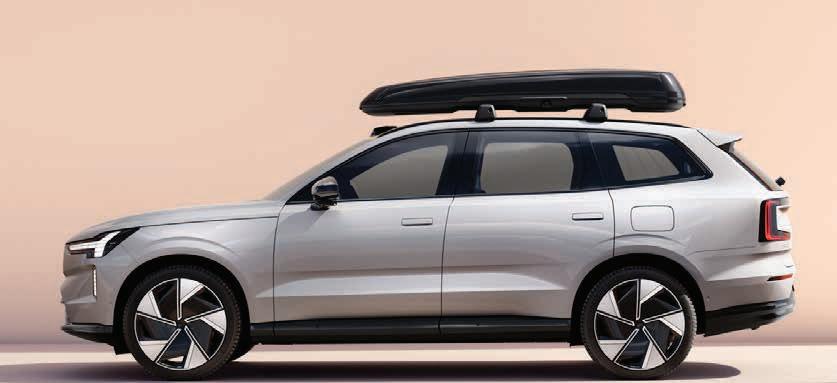
In the current special offer, prepared exclusively for members of diplomatic community, all three XC models are available under particularly favorable conditions:
What has also always been the nature of thinking at Volvo are the cars that carefully look after environment. Just as diplomatic travels are often long, it is important in the long run to know how to preserve natural world.
Volvo Cars is on the journey towards becoming a climate neutral business by 2040. All of us need to act to make sure the future is more sustainable, and Volvo Cars is proud to help lead the way. The time for an electrified vehicles is now.
Therefore, Volvo Diplomatic offer also always includes cars that are very protective to nature. Today, these are plug-in hybrids XC60 and XC90 Recharge that provide more power and less impact on the environment. As every Volvo, of course, they offer all the elegance and comfort on diplomatic travels. In the special offer created exclusively for diplomats these cars are available:
Our new fully electric Volvo EX30 is designed to be as safe as you’d expect from us. It is designed to have the smallest CO 2 footprint of any Volvo car to date, and to make people’s lives safer, more convenient and more enjoyable through cuttingedge technology and Scandinavian design.
Finally, if performance is your priority, pick the Twin Motor Performance variant in which we pair the NMC battery with an additional second e-motor. This all-wheel drive variant of the EX30 provides 315kW (428hp) and takes you from 0-100 km/h in 3.6 seconds – it’s officially our fastest-accelerating car ever!
Another thing the EX30 does fast is charging. The extended-range Twin Motor variant has a charging capacity of up to 153kW, while the standard-range car has a capacity of 134kW. That means you can charge your battery from 10 to 80 per cent in a little over 25 minutes.
You can read more about all the Volvo cars and the Volvo Cars Diplomatic Sales service on the website volvocars.hr, or if you prefer to contact Volvo directly, write to diplomatic.sales@vcag. net. , Fleet Manager (Mr. Matija Bilic / matija. bilic@vcag.net )
In the year of its 125th anniversary, Miele has taken a moment to reflect on the lessons it has learned throughout its history – not only from its own development and design processes, but also from its customers and their experiences with Miele products.
ONCE YOU EXPERIENCE MIELE, YOU NEVER WANT ANYTHING ELSE
Traditionally, an oven isn’t something people lust over. And a vacuum certainly isnʼt something people ever have hopes of loving. No one dreams of a dishwasher.
And yet, somehow, when you meet a sleek Miele G7000 dishwasher with a PowerDisk and AutoOpen which dries your dishes perfectly, you wonder why youʼve had such low expectations of your appliances to date. At the heart of them, appliances are supposed to make our lives easier.
And you could say most do that. But if these machines are meant to be used every day, and take care of our most prized possessions, our wedding dishes, our silk dresses, our hand-woven rugs, shouldnʼt we also love them? Shouldnʼt we trust them explicitly? And shouldnʼt they help us live the lives we really want to live?
Living with Miele is living with quality you can never walk away from again.
THE MIELE INDUCTION HOBS WITH INTEGRATED EXTRACTOR
A hob that satisfies all tastes. Miele induction hobs with integrated extractor boast a sleek, premium design that effortlessly complements any kitchen. With effective odour and grease removal, they guarantee a pristine kitchen atmosphere, regardless of your culinary creation.
This could be the day your oven roasts, steams and cleans itself afterwards. From crispy fries to succulent steaks, and complete meals that cater to your every culinary desire, raise your expectations of what an oven can do. Experience unparalleled cooking versatility for years to come - with the Miele combination steam oven, great taste is passed on.
Your finest glassware should be your everyday glassware. That’s why a Miele dishwasher is equipped with the technology to deliver impeccable care and cleaning results. Discover AutoDos, for precise and automatic detergent dispensing. Experience the ease of adjustable baskets, for flexible loading. Enjoy eco-friendly savings, a spotless finish, and enduring Miele quality – cycle after cycle.
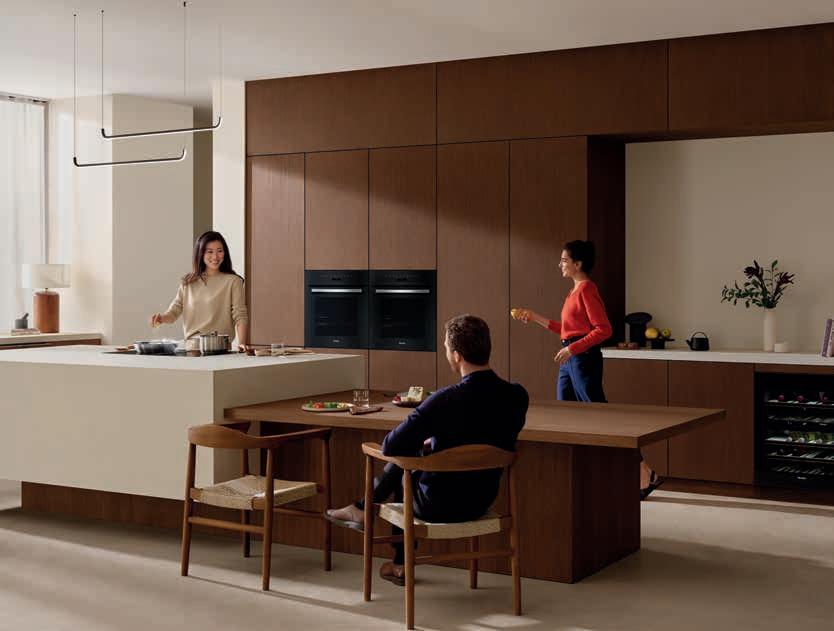
Ever imagined laundry appliances that care for your clothes as much as you do?
Miele laundry appliances enrich your laundry experience, with efficient washing and drying credentials and a strong focus on garment care. Crafted with a timeless design and with longevity in mind to ensure you enjoy within your home for years to come.
Miele appliances are crafted for longevity, effortlessly blending both form and function. They are designed so that you fall in love with them, time and time again.
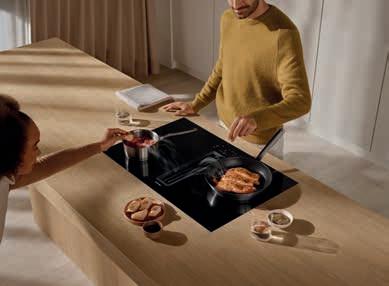
Since designing and delivering our very first cream separator in 1899, our philosophy and conviction remain unchanged: Immer Besser. Through quality and innovation, we continue to improve homes and liives of our customers with exclusive designs, convenient features, and smart appliances.
Our features turn appliances into objects of desire worthy of being proud of. They change our expectations of appliances and how we live our lives at home.
Miele makes sustainability feel like an upgrade. Long lasting design thatʼs beautiful, increased functionality with reduced water and electricity consumption.
The outstanding product quality and durability that Miele has stood for over the past 125 years will continue to be at the heart of the Miele brand.
You’re bound to Miele forever.
Which is why: Once a Miele, Always a Miele.
It’s no longer just about where you stay—it’s about how you embody that experience in your everyday life.
At Dukley Resort in Montenegro, this philosophy is brought to life through a commitment to innovation, smart technologies, sustainability, personalisation of guest’s experience. In conversation with Mr. Neil Emilfarb, the visionary owner who has introduced cutting-edge practices to premium tourism and hospitality in this part of the world, we explore what the future holds for this sector. And he says: the future is now!
As someone with significant influence and experience in the industry, how do you see the role of high-end, exclusive destinations like Dukley in shaping the future of business and events tourism? What unique factors make Dukley stand out for elite corporate travellers? Dukley is redefining the future of business and events tourism with high-end destinations that seamlessly merge luxury with productivity. We craft extraordinary experiences that offer the perfect balance of elegance and efficiency. Our diverse range of accommodations, private beaches, and exceptional dining and event venues allow us to curate unforgettable moments and meaningful experiences for both private and corporate guests.
Our unwavering commitment to bespoke services and innovation enables corporate travellers to thrive in an inspiring and luxurious environment. We take great pride in maintaining the highest standards of luxury, particularly with our two upcoming projects.
“The Dreams” by Dukley is a captivating luxury real estate development set in the stunning city of Tivat. This exclusive project introduces a world of unparalleled elegance and refined coastal living. The collection of seafront residences offers breathtaking views, world-class amenities, and impeccable craftsmanship, ensuring an extraordinary lifestyle for its residents.
Recognising the growing demand for mountain retreats that harmonise tranquility with luxury, we are also embarking on a new project in Kolašin. Surrounded by majestic mountains, The Mountain Retreat by Dukley, a premium class complex of residencies and villas, hidden in enchanting forest of Mount Bjelasica promises serenity and luxury in one of the most sought-after destinations in this part of Europe. It is set between Kolašin city and ski center. For early investors it can also generate high-yield passive income with up to a 32% annual return in 7 months. Our added value includes attractive payment plans and rental opportunities for the residences during periods when clients are not utilising them.
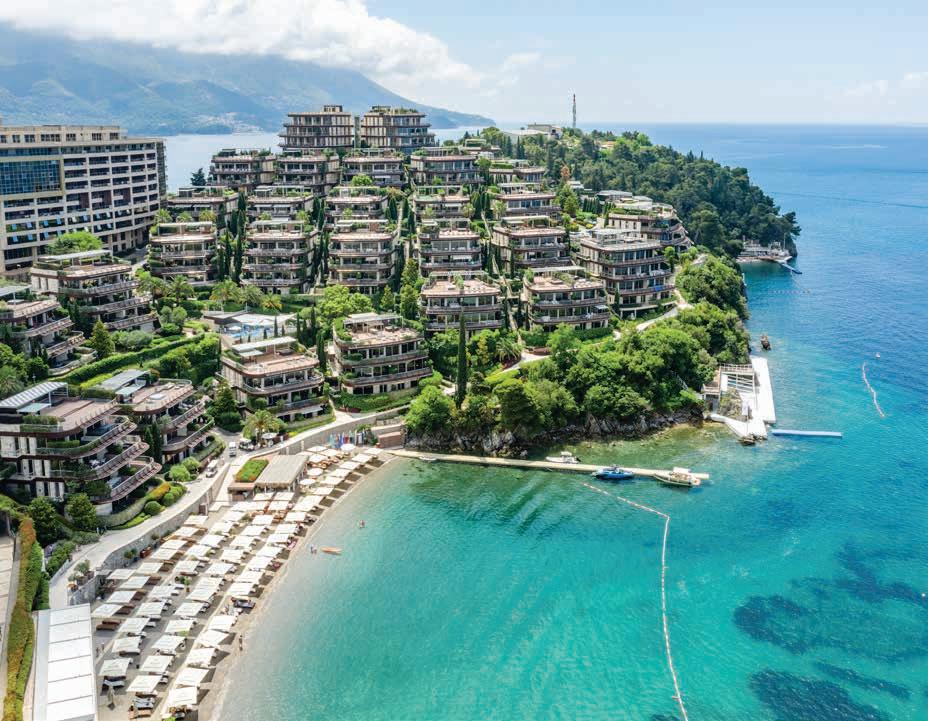

Besides, Dukley is the first property to accept cryptocurrency for both stays and residence purchases. At the heart of our business lies a commitment to technology and innovation. With AI-driven concierge services and smart room technologies, we redefine luxury for our guests.
Our offerings—three exclusive private beaches, seven exquisite dining venues, and personalised experiences—cater to every desire. Dukley is not just showcasing Montenegro; we are elevating it as a world-class destination for

those who seek the extraordinary on the global tourism and hospitality scene.
How has the rise of bleisure (combining business and leisure travel) influenced Dukley’s offerings for business travellers and events/conference participants?
The rise of bleisure travel has ignited our creativity at Dukley! Today’s business travellers seek more than just a venue; they desire a holistic experience that enables efficient work and luxurious relaxation. We seamlessly blend
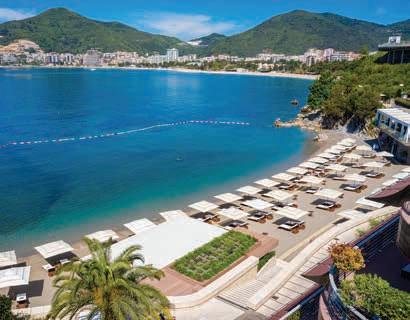
state-of-the-art facilities with leisure opportunities, offering pampering spa treatments and cultural excursions that immerse guests in rich Montenegrin heritage. At Dukley, we create an environment where work and pleasure coexist harmoniously, allowing our guests to leave feeling rejuvenated and inspired.
What expectations do premium travellers have regarding convenience, luxury, and the personalisation of their experience at Dukley?
Premium travelers seek more than ordinary luxury—they demand the extraordinary. At Dukley, every moment is tailored to their needs, ensuring that each experience feels personalized and exceptional. From bespoke dining to personalized services that delight the senses, we create an atmosphere that feels like a second home—only more opulent.
Luxury hotels are becoming hubs for stylish status symbols, and branded merchandise is rapidly gaining popularity among discerning guests. The appeal of exclusive hotel merchandise goes beyond mere souvenirs; it represents a refined lifestyle and access to premium experiences. Whether it’s custom robes, high-end accessories, or unique art pieces, our guests seek to own items that few others can. Fashion is moving into the realm of experiences and hotels, and as always, we strive to be at the forefront of this trend.

We take pride in seeing our guests proudly carrying branded rafia bags, a symbol of our dedication to luxury in harmony with nature. Branded hotel merchandise creates a sense of belonging to an exclusive club, offering access to elite experiences and a connection to a world of luxury—long after our guests have checked out. It is also about storytelling and heritage: it allows them to carry a piece of Dukley’s legacy with them.
In what ways is Dukley balancing the demand for luxury with the need for sustainability in the premium tourism sector?
For today’s travellers, sustainability is not just an added benefit—it’s a crucial factor in their decision-making process. New generations are more eco-conscious t and they actively seek brands and experiences that align with their values. Sustainability isn’t just a buzzword for us—it’s a commitment to ensuring that the luxury experience we offer today doesn’t compro-
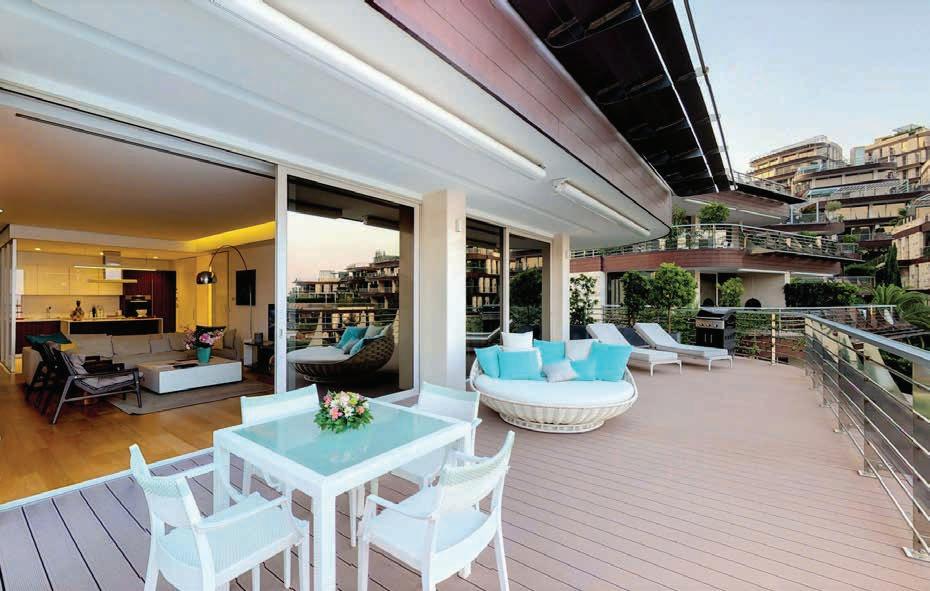
mise the resources and beauty available for future generations. We are passionately dedicated to creating a luxurious haven that respects and preserves Montenegro’s natural beauty. With over 40,000 m² of lush greenery, our resort exemplifies our commitment to eco-friendliness. We use refillable cosmetics, source organic produce from our garden, and implement innovative conservation programs.
How do you envision the evolving perspectives of travellers impacting the premium tourism sector in the next 3-5 years, especially regarding their expectations? With a strong shift toward sustainability, personalisation, well-being, social responsibility, and the integration of smart technologies, the future is now for Dukley. Travellers are evolving to demand more than just a luxury experience—they seek to leave a positive impact. They expect premium destinations to lead in social responsibility, including community outreach, ethical tourism, and local engagement. Whether through volunteerism, philanthropic programs, or supporting local businesses, they want to actively contribute to the communities they visit.
The premium tourism sector must embrace purpose-driven travel, where guests can participate in meaningful causes, such as supporting local artisans, engaging in conservation efforts, or contributing to educational initiatives. The next generation of travellers is not only looking for luxury experiences but for destinations that align with their values and sense of purpose.
At Dukley, we are already actively contributing to the educational prospects of Montenegro. Through our Dukley Art Centre, Kids Club, and Dukley Academy, established in 2010, we create opportunities for growth and development within the community. The Dukley Academy actively participate in seminars and build a shared community, with summer camps, educational trips, and programs.
In addition to our educational initiatives, we are proud to organise community events such as the New Year Bazaar and the Day of Science, further demonstrating our commitment to supporting and enriching the local community.
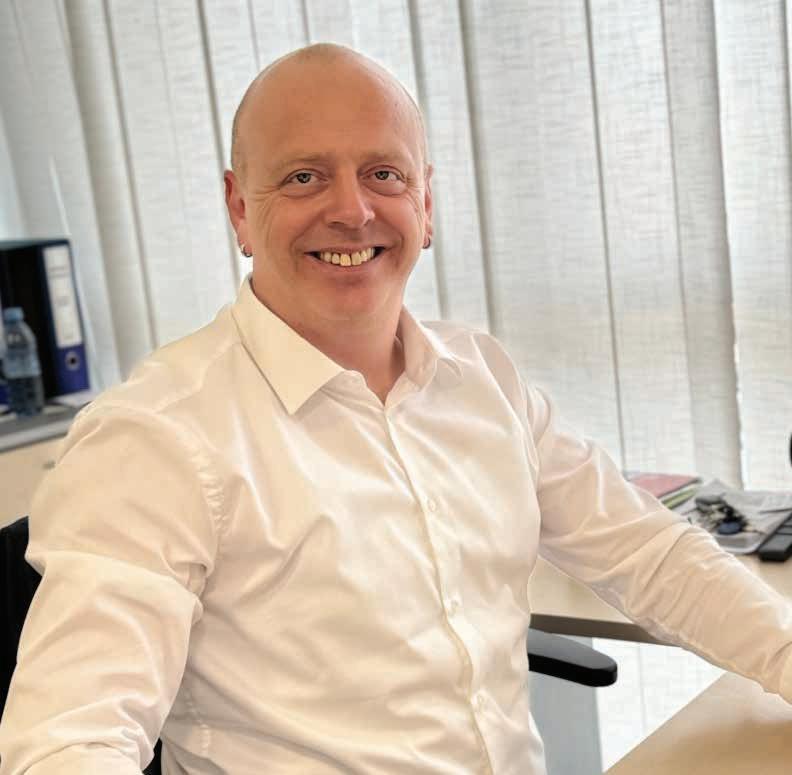
Expanding Across 10 Markets with Innovative Makeup brands essence and Catrice
ADNAN IMAMOVIĆ
VM2 COSMETICS Member of the Management Board
In this interview, Mr Adnan Imamović, Member of the Management Board of VM2 COSMETICS, shares insights into the company’s successful expansion across Southeast Europe, its partnership with Cosnova, and the driving forces behind the popularity of brands like essence and Catrice.
What is the background and core business of VM2 COSMETICS?
VM2 COSMETICS is a specialised company engaged in the distribution and promotion of makeup products, with a focus on affordable, high-quality brands such as essence and Catrice. It was established as a joint venture with the German company Cosnova, a leader in the decorative cosmetics industry, ensuring a solid market position and a continuous fo-
cus on innovation in the beauty world. The growth and success of the Cosnova group are also impressive. Cosnova, a family-owned business entering its third decade, has seen significant growth. Their net sales reached €817 million in 2023. “The key to conquering new markets and achieving top sales results is understanding each market and having partners who have been in those markets for many years, as well as recognising new opportunities, applying Cosnova’s German business model,” says Imamović.
How does VM2 COSMETICS distribute the makeup brands essence and Catrice?
VM2 COSMETICS uses an extensive distribution network, including retail chains, drugstores, specialised beauty stores, and online platforms. Interestingly, all distribution for the countries we operate in is handled from Zagreb, enabling centralised and efficient logistics.
In which markets does VM2 COSMETICS operate, and what are their primary focuses?
VM2 COSMETICS currently operates in 10 countries: Croatia, Slovenia, Bosnia and Herzegovina, Serbia, Montenegro, North Macedonia, Albania, Kosovo, Bulgaria, and Romania. Our primary focus is on the countries of Southeast Europe, where we successfully offer innovative and affordable makeup products, with a special emphasis on a youthful audience seeking trendy and quality products.
What is the company’s approach to expanding into new markets, and what is their working philosophy?

Our approach to expansion is based on thorough market research and understanding consumer needs. We nurture a philosophy of close cooperation with local partners to adapt our products and marketing strategies to the specificities of each market. Flexibility and adaptability are key to our success. Employees are VM2 COSMETICS’ most valuable resource, and continuous investment in their development is the foundation of long-term success. The company is committed to creating a stimulating work environment and providing opportunities for the personal and professional growth of all employees. As I often emphasise: “If you’re not getting
better every day, you’re becoming average.” This motto motivates us daily to develop, learn, and strive for excellence.
What are the key success factors for VM2 COSMETICS in selling the essence and Catrice brands in regional markets?
Our success rests on product quality, affordable prices, and the ability to follow global trends in cosmetics. Additionally, continuous presence on social media and communication with our audience is key to building brand loyalty. Moreover, operating in 10 countries allows us to gain insight into different regional consumer needs and preferences, while centralised distribution from Zagreb ensures optimised logistics and fast delivery.


How popular are essence and Catrice makeup brands in the markets where VM2 COSMETICS operates?

essence and Catrice are trendy brands, especially among young people. Their combination of quality products and affordable prices provides them with a stable market position. In contrast, the regular release of new collections and products keeps consumer interest both globally and in the countries where we operate.
What challenges and opportunities does VM2 COSMETICS face in different markets?
Challenges include increasing global instability and changes in consumer preferences, but opportunities lie in expanding the range and introducing new, innovative products that appeal even to the most demanding consumers. Furthermore, the growing demand for sustainable and environmentally friendly products presents additional growth opportunities in the Southeast European markets.
What role do sustainable initiatives play in the company’s strategy and its brands?
Sustainable initiatives play a key role in our strategy. VM2 COSMETICS, along with the brands essence and Catrice, continuously works on reducing its environmental footprint by using eco-friendly materials in packaging and supporting crueltyfree policies. Our consumers in the region appreciate our commitment to sustainability, contributing to long-term brand loyalty.




























































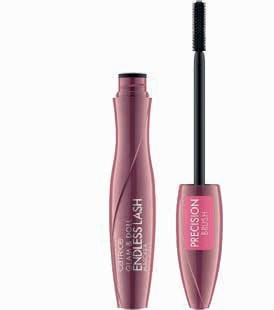








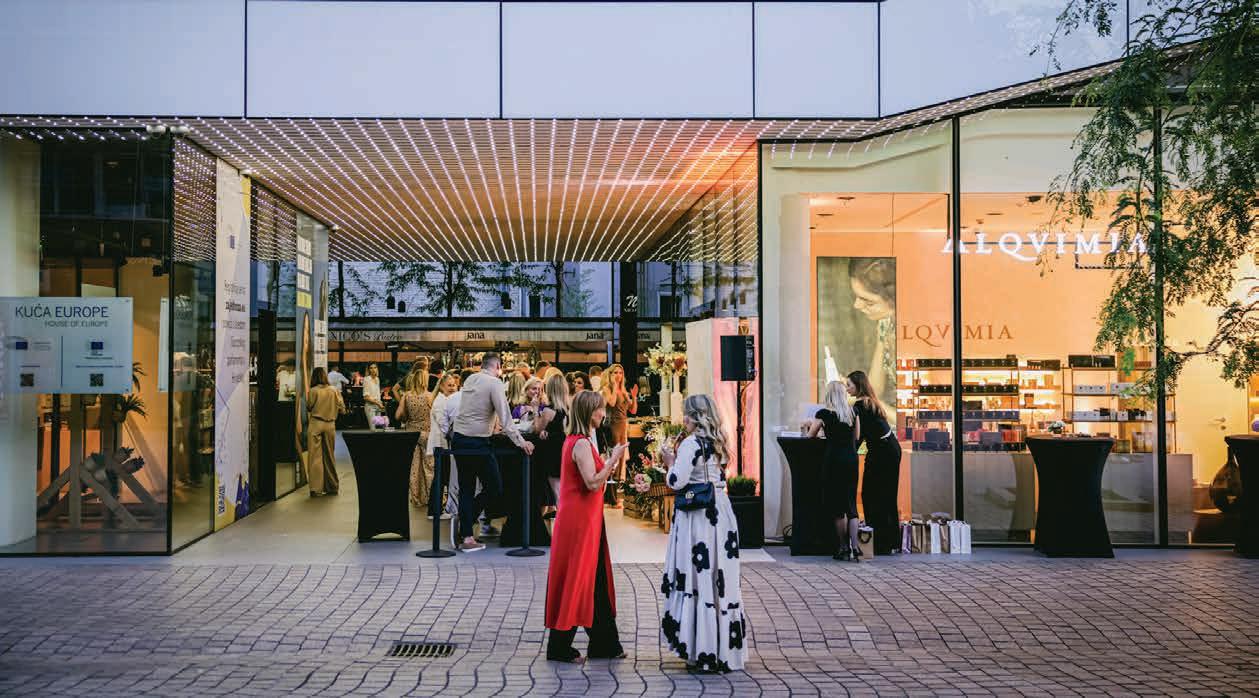
In the very center of Zagreb, at Europski Square, is the home of Alqvimia Store & Spa, Spanish holistic 100% natural cometics present in the most exclusive spa centres around the world.
ALQVIMIA is famous for its spa rituals, that can be found only in the most luxuroius hotels as Mandarin Oriental, Shangri La, Four Seasons, Six Senses, Burj Al Arab, in Croatia in Maslina Resort and hotel Amabasdor Split, and now in – Zagreb, at ALQVIMIA Store & Spa.
Spa ritual is a session that combines facial, body and energyemotional treatment in a space to take care of and connect with yourself. The ALQVIMIA Rituals are an authentic sensory experience that will transport you to a place within you where you may have never been.
The face and body will unfold all their beauty thanks to the power of alchemical aromatherapy. The mind will leave all worries behind, and the emotions will emerge on a journey towards the most intimate transformation.
YOU CAN CHOOSE BETWEEN:
• GARDEN OF DESIRE - SENSUALITY (120‘)
Inspired by the most feminine flowers, with this ritual you will change your way of walking through life. You will feel more beautiful, more sensual, more seductive, more vital, more creative.

• GARDEN OF DESIRESEDUCTIVE (120’)
This ritual is for those men who care. ALQVIMIA will treat face, body and mind in an experience that will bring into the light all your authenticity and power of seduction.
• ETERNAL YOUTH (120’)
This exclusive luxurious ritual combines oriental massage techniques, the powerful light of white quartz and the effective properties of Alqvimia’s Eternal Youth line of products.
• OASIS OF SERENITY (90’)
This Spa Ritual consists of a combination of an anti-stress body

treatment, a nourishing and moisturizing facial treatment and the energy balance that comes from the Tibetan singing bowls.
• QUEEN OF EGYPT (90’)
This Beauty Ritual, performed with Dead Sea Salt and Mud, with exotic fragrances and soft shades of incense and myrrh, will rejuvenate your skin, restoring its beauty and natural attractive- ness, enhancing your self-esteem and your inner streng.









